Nov. 1-7, 2024
30 Tishrei, 5785 • Noach Vol. 23, No. 37
Reach the Star: Editor@TheJewishStar.com 516-622-7461 x291


USA, for community, for Am Yisrael

Nov. 1-7, 2024
30 Tishrei, 5785 • Noach Vol. 23, No. 37
Reach the Star: Editor@TheJewishStar.com 516-622-7461 x291


USA, for community, for Am Yisrael
The Orthodox Union’s Teach Coalition is working overtime to bring out Jewish voters in the general election that ends on Nov. 5.
“If we want our elected officials to defend Israel, combat antisemitism and recognize our concerns around security and the costs of private education, we must make our voices heard as a community by voting for people who will champion and fight for the issues we care about,” said Teach Coalition Founder and Chief Executive Officer Maury Litwack.
He discounted the notion that a person’s vote “doesn’t matter.”
“They say that they voted once, but didn’t get the outcome they wanted,” he said. “To me, that only underscores our collective responsibility to vote, and to ensure that our friends and family vote too. True, the official of your choice may not win. But if you and 20 of your friends vote, the outcome may be affected.”
Earlier this year, Teach Coalition opened first-ever voter centers in Jewish communities nationwide, including a storefront in Westchester’s Jewish community that brought out the vote in a key primary election (where high Jewish turnout helped oust the district’s vehemently anti-Israel Squad member, Rep. Jamaal Bowman). Offices also opened in the Five Towns (opposite the Cedarhurst LIRR staton), in Philadelphia, Beverly Hills, Boca Raton, and Miami, in addition to several mobile voter centers.


By Ed Weintrob, The Jewish Star Pro-Israel Democratic Rep. Ritchie Torres joined congressional candidate Laura Gillen as she stumped for votes at the Cedarhurst LIRR station during the morning rush on Monday.
Torres, the gay Latino progressive from the Bronx who’s made a mark by speaking firmly and continuously in support of the Jewish state, was there to lend his credibility to Gillen’s pro-Israel bonafides as she seeks to unseat one-term Republican Rep. An-
thony D’Esposito in Nassau’s 4th CD. She lost to D’Esposito in 2022.
Torres, who is often greeted like a rock star in his district’s heavily Jewish and liberal-leaning Riverdale neighborhood, was warmly welcomed by the mostly Orthodox commuters he and Gillen encountered in politically-red Cedarhurst.
While everyone Gillen encountered greeted her politely, few promised their votes. One young man from
See Dem ‘rock star’ on page 2
JOnaThan S. TObin
JnS Editor-in-Chief

Historical memory lies at the heart of most Jewish holiday commemorations. During Sukkot, for example, Jews daily welcome ushpizin — “guests” or ancestors,
including the patriarchs of Judaism — into their sukkahs, which themselves are a remembrance of the post-Exodus wanderings of the Jewish people in the desert.
It is just one example of how identification with the past is very much part of the present. It also emphasizes the collective fate of a people on their way to their homeland, where shelter would hopefully no longer be a function of impermanent huts open to the stars. On Sukkot, we not only invite guests into our
For The Jewish Star
Republican Rep. Anthony D’Esposito was set to make a splash in Franklin Square on Wednesday, with a campaign appearance in support of his reelection by House Speaker Mike Johnson and former Long Island Rep. Lee Zeldin.
D’Esposito, a one-term incumbent in the Long Island’s 4th CD, is challenged by former Hempstead Town Supervisor Laura Gillen, who he defeated in 2022. It’s considered a swing district, having chosen President Biden
homes, it is a way we connect ourselves with that journey to Israel.
But for a small though noisy minority of contemporary American Jews, the fate of other Jews and Israel is no longer a matter with which they concern themselves. As a consequence, it is now more imperative than ever for Jews to stop pretending that one can join those chanting “from the river to the sea” and “globalize the intifada” — slogans that justify and encourage the genocide of the Jews of Is-
in 2020 and D’Esposito two years later.
On Tuesday Zeldin joined D’Esposito in New Hyde Park to denounce open borders and sanctuary city policies and discuss how the “migrant crisis has profoundly and negatively impacted Nassau communities.”
D’Esposito has spoken frequently about his support for Israel and for the election of former President Trump. “I don’t believe that Oct. 7 would have happened if we had stronger leadership,” he told The Jewish Star.
rael — and still be considered part of the Jewish community.
Anti-Zionists may be considered Jewish according to halacha and by the New York Times, but in the post-Oct. 7 world, it should no longer be possible to pretend to speak for Jewish values or tradition, or to be part of the Jewish world, while opposing the right of the one Jewish state on the planet to exist and defend itself.
See Jewish anti-Zionists on page 2
Continued from page 1
Lawrence, though, made a point of saying he trusted her — and former President Trump — on Israel and would vote for both. He does not trust Vice President Harris, he said.
Several people offered profuse thanks to Torres for his muscular support.
A lone Far Rockaway-bound commuter on the opposite platform waved and shouted words of appreciation.
The Jewish Star asked Gillen for a reaction to Harris’ failure to challenge a helckler’s description of Israel’s military actions in Gaza as “genocide.”
“The reason we’re seeing the suf-
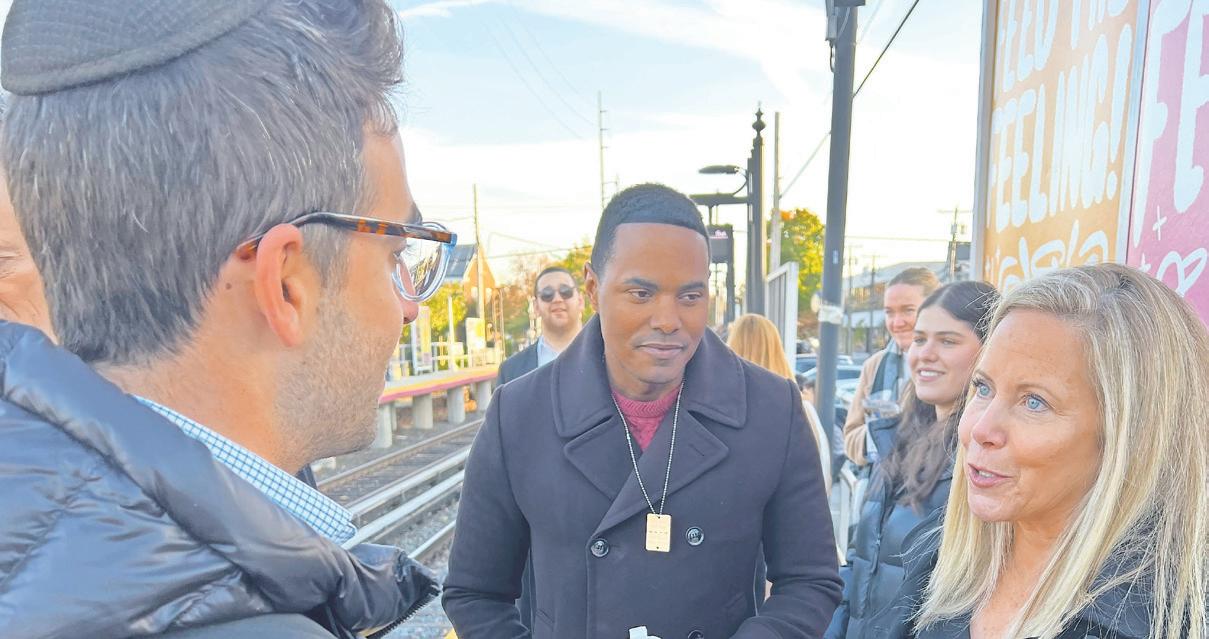
fering in the Middle East is because of Hamas,” Gillen said. “Hamas is a terrorist organization that launched an unprovoked attack on Israel, slaughtered children, slaughtered women, perpetrated gruesome sexual violence to women on Oct. 7.”
She continued: “Hamas puts its own people in harm’s way … harming their own people to have Israel lose the PR war. Hamas is the reason for all the suffering.”
Gillen voiced support for Israel’s actions — “Israel has the right to defend itself, and Israel is perpetrating its defense in the way that it sees fit,” she said. But like Harris, she repeatedly avoided using the word, “genocide” in
saying Israel wasn’t guilty of it.
If “you disagree with calling it genocide, what would you call it?” she was asked. “Casualties of war,” she responded, “casualties of war.”
The Jewish Star asked Torres how it feels to be a rock star in Riverdale.
“It’s always a good thing when your constituents like you,” he said. “The relationship between me and the Jewish community in Riverdale is a marriage made in heaven.”
“Keep in mind,” he added, “that Riverdale went from [Squad member] Jamaal Bowman to myself, so I think most of my constituents would consider that an upgrade.”
Continued from page 1
The debate about Zionism in the Jewish world was once a vigorous one. In the first half of the 20th century before the Holocaust and the establishment of the modern-day State of Israel in 1948, Jews were divided about its merits.
Some in the Diaspora, particularly among the wealthy and most secure in places like the United States and Britain, feared their rights would be compromised by a Jewish state existing somewhere else. Socialists, primarily in the Bund movement, preferred to work for the establishment of their idea of a utopian future in which Jewish rights and autonomy would be respected, particularly in Eastern European lands where Jews were numerous. Many religious Jews also feared that anticipating the Messianic Age, in which the ancient kingdom of Israel would be restored along with the Holy Temple in Jerusalem, was sinful.
The verdict of history on those critics of Zionism was brutal.
Bundism died in the flames of the Shoah and the horrors of totalitarian communism in the Soviet empire, where Jews were persecuted even more than they had been by Russia’s tsars. And while most ultra-Orthodox Jews don’t call themselves Zionists, they have recognized that Israel’s existence has provided the security and the financial support that has enabled them to flourish in ways undreamed of a century ago, even if their opting out of the economy and the obligation to serve in the IDF has created social strife with other Jews. Only a tiny minority of haredim still actively oppose Israel’s existence.
The point being is that while Zionism was a hypothetical during the lifetime of movement founder Theodor Herzl and the four decades after his death in 1904, that is no longer true. Israel is not an idea. It is a country of almost 10 million people with a thriving democracy and a Jewish majority that numbers approximately 7.2 million.
Just as important, the verdict of history about the security of Jewish minorities is similarly conclusive. After the experience of two millennia of exile culminating in the Holocaust, the idea that Jews can collectively depend on the kindness of strangers is no longer viable.
Those who side with the killers, rapists and kidnappers of Jews aren’t the product of liberal Jewish values. They are betraying them — and they must be told as much.

One day changed everything
Moreover, after Oct. 7, the overwhelming majority of even those Jews who dreamed of some kind of coexistence with the Palestinians involving two states understand that Jewish survival is not imaginable without a strong State of Israel that can defend its people. The Palestinian massacre of Jews in southern Israel that took place a year ago was merely a trailer for what they intended for the entire Jewish population. The same is true for the invasion of northern Israel by Hezbollah terrorists that was thwarted by the IDF offensive in Lebanon.
While this was apparent even before Oct. 7 to those who paid attention to Palestinian discourse, these events changed everything about this discussion.
Simply put, if you oppose Israel and think the arguments of those who call for its destruction are persuasive, then you are putting yourself on the side of those who engaged in an orgy of mass murder, rape, torture, kidnapping and wanton destruction a year ago, as well as those who wish to repeat it on an even larger scale.
While Zionism was considered a debatable idea a century ago, today it is something very different. It is not an accident that those who wish to destroy Israel oppose the working definition of antisemitism provided by the International Holocaust Remembrance Alliance, which includes examples of anti-Zionism.
Israel is the only country in the world that has generated an international movement to destroy it, despite it being the only democracy in the Middle East. Those who wish to deny Jews rights, such as the ability to live in peace and security and to defend themselves in their ancient homeland, are advocating discrimination and are connecting themselves to the world’s oldest hatred. Thus, those who support discrimination against Jews are promoting antisemitism.
Yet somehow, identification with that evil cause and even the vile crimes of Oct. 7 is something that current intellectual fashion considers respectable opinion. As the reaction to Ta-Nehisi Coates’ new anti-Zionist book from the literary establishment shows, not even statements about a desire to participate in another Oct. 7 is enough to damage an African-American writer’s reputa-
tion or diminish the rapturous reception of his ignorant musings.
But perhaps the most troubling aspect of the post-Oct. 7 surge in antisemitism throughout the world and particularly in the United States is the way this cause has been embraced by some leftwing Jews.
One person who has addressed this problem head-on is Rabbi Ammiel Hirsch, senior rabbi of a flagship institution of the Reform movement: the Stephen Wise Free Synagogue on Manhattan’s Upper West Side. Hirsch has been speaking out eloquently in recent years about the problem of liberal Jews abandoning Israel. He did so again in a Yom Kippur sermon that centered on reactions to Oct. 7 that all Jews need to hear.
Hirsch pointed out that what has happened on the Jewish left is not what Reform leaders like himself had ever intended. They are deeply critical of the Israeli government and many of its policies. As he put it, they wanted their youth to feel compassion for Palestinians and to uphold principles of social justice. He said they wanted young Jews to take these positions from a position of kinship with fellow Jews and Israel. But that is not what has happened.
As he described the situation:
What we did not intend is for some in your generation to turn your backs on our people. We wanted you to be Zionists.
We did not intend that our emphasis on tikkun olam — social repair — would lead some Jews to join anti-Israel demonstrations. We did not intend for Jews to lead Passover seders in so-called “liberated zones” (liberated from Zionists) that not only violate university policies but also threaten the safety of Jewish students.
Some of those protests contain anti-American sentiments as well. We did not intend to encourage or excuse Jews who burn American flags or support those who do. … We did not intend that criticism of Israeli policy to lead to detached indifference and a vacuous lack of compassion for the murdered, brutalized, sexually assaulted and kidnapped of our own people.
We did not intend that some in your generation give not even a passing thought to the many tens of
thousands of our people who have become refugees from their southern and northern homes.
We did not intend to strip Jewish solidarity, empathy, responsibility and mutuality from your Jewish identity — not only towards Israeli civilians, but soldiers your age who exhibit astonishing courage and remarkable self-sacrifice, many of whom laid down their lives protecting our people in feats of enormous heroism.
What happened was that the balance between the universal and sectarian aspects of Judaism went off-kilter and, as Hirsch said, the “Jewish spirit” that Jewish liberal leaders thought they were inculcating in their youth was allowed to “dribble away.”
That is why it is imperative that those who speak for movements like Reform Judaism speak out, as Hirsch has done, to make it clear that those who turn on their own people have, in effect, left the fold in a way that has led to real harm.
To some on the Jewish right, especially among the Orthodox, the response has been that the problem is not so much what liberal Jews did wrong as the whole idea of non-Orthodox Judaism. But that is not an approach that will do American Jewry any good.
The fact remains that the overwhelming majority of Jews living in the United States identify with the liberal movements if they feel any connection to Jewish institutions at all. And despite the demographic decline within American Judaism of the liberal movements and the growth among the Orthodox, the gap between the two is so large that there is no possible scenario where these groups will be on equal footing for generations.
If we are to fight back against anti-Zionists who are recruiting Jews from the liberal movements into the ranks of groups like Jewish Voice for Peace and IfNotNow, which make common cause with those who make war on Israel and who traffic in antisemitism themselves, it can’t happen by merely writing off everyone outside of the Jewish religious and political right.
The only way it will occur is by liberal Jewish institutions re-emphasizing the centrality of Israel and Zionism to their denominations and brands of Judaism.
The Jewish community need not agree on every point of observance or about politics, be it of the Israeli or American varieties. But we must agree on our common past and our common peril as antisemites — whether of the more dominant left-wing or of the right — threaten us all.
And we must recognize that if we are to have a Jewish future in the Diaspora or in our ancient homeland, it can only be in a world with a strong and secure Israel.
Rabbi Hirsch speaks for all of the Jewish people when he notes the need for young Jews to remember our past and to acknowledge the perils facing us today. Those who side with the killers, rapists and kidnappers of Jews aren’t the product of liberal Jewish values. They are betraying them — and they must be told as much.
As a State Senator, I have fought for taxpayers. Indeed, stopping the Governor’s $1 billion “Congestion Pricing” tax was an important victory for our commuters. What’s more, restoring the school aid cuts that the Governor proposed in this year’s budget prevented increased costs for local taxpayers. Finally, I will continue to oppose proposals for a “Sanctuary County” in Nassau, which would overwhelm our taxpayers.
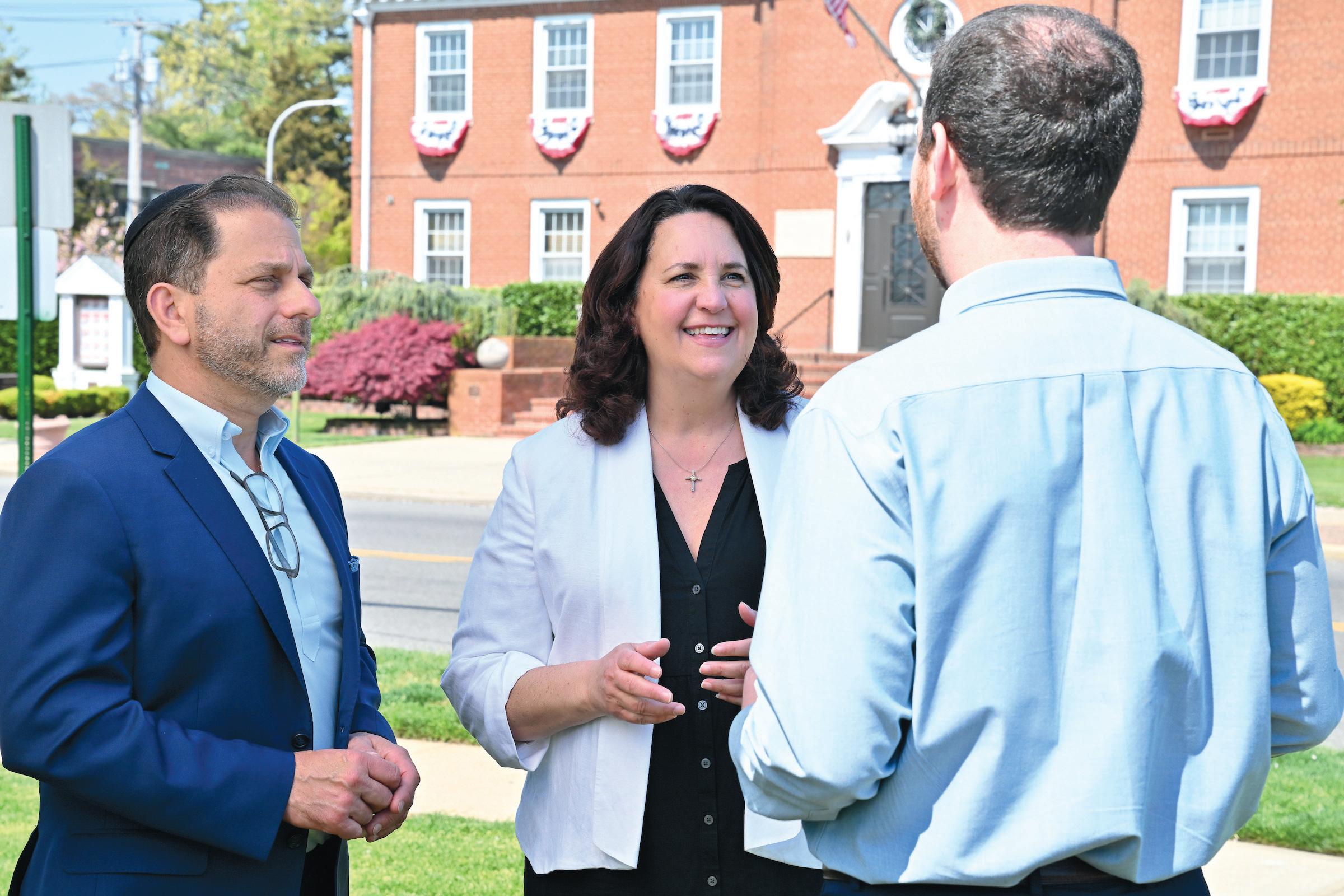
Re-Elect Patricia


By Andrew Pessin
After several decades of a successful legal career, David Friedman, from Woodsburgh in the Five Towns, became US ambassador to Israel in 2017 under then-President Donald Trump and orchestrated major diplomatic advances — including moving the US embassy to Jerusalem, recognizing Israel’s sovereignty over the Golan Heights and helping to broker the 2020 Abraham Accords.
In his new book, “One Jewish State,” Friedman presents ongoing challenges and obstacles, which has already inspired a new party vying for seats in the upcoming World Zionist Congress elections aptly named One Jewish State.
He challenges “the most widely accepted but fatally flawed concept in Middle Eastern diplomacy: the two-state solution.” The Palestinians don’t want it and never have. The Palestinian leadership and most Palestinians do not accept the existence of a Jewish state in any borders. Any state given to them will only advance their agenda of destroying the Jewish state.
For anyone who supports Israel and the right of Jews to live in this region in safety, a Palestinian state should be a non-starter.
So, what’s left if we jettison the two-state solution? Basically “one state.”
•One Palestinian state “from the river to the sea” is obviously off the table for the pro-Israel side.
•Friedman does not consider a “binational state,” but one can speculate why: That is not a Jewish state, and his starting point is that there must be a Jewish state.
•That leaves, then, the “one Jewish state.” The basic idea is that Israel must exert its sovereignty over Judea and Samaria. (Gaza is a separate and difficult case, as Friedman acknowledges in a chapter devoted to it, which we shall not treat here.)
There are positive arguments for the idea.
Only under Israeli sovereignty will Pales-
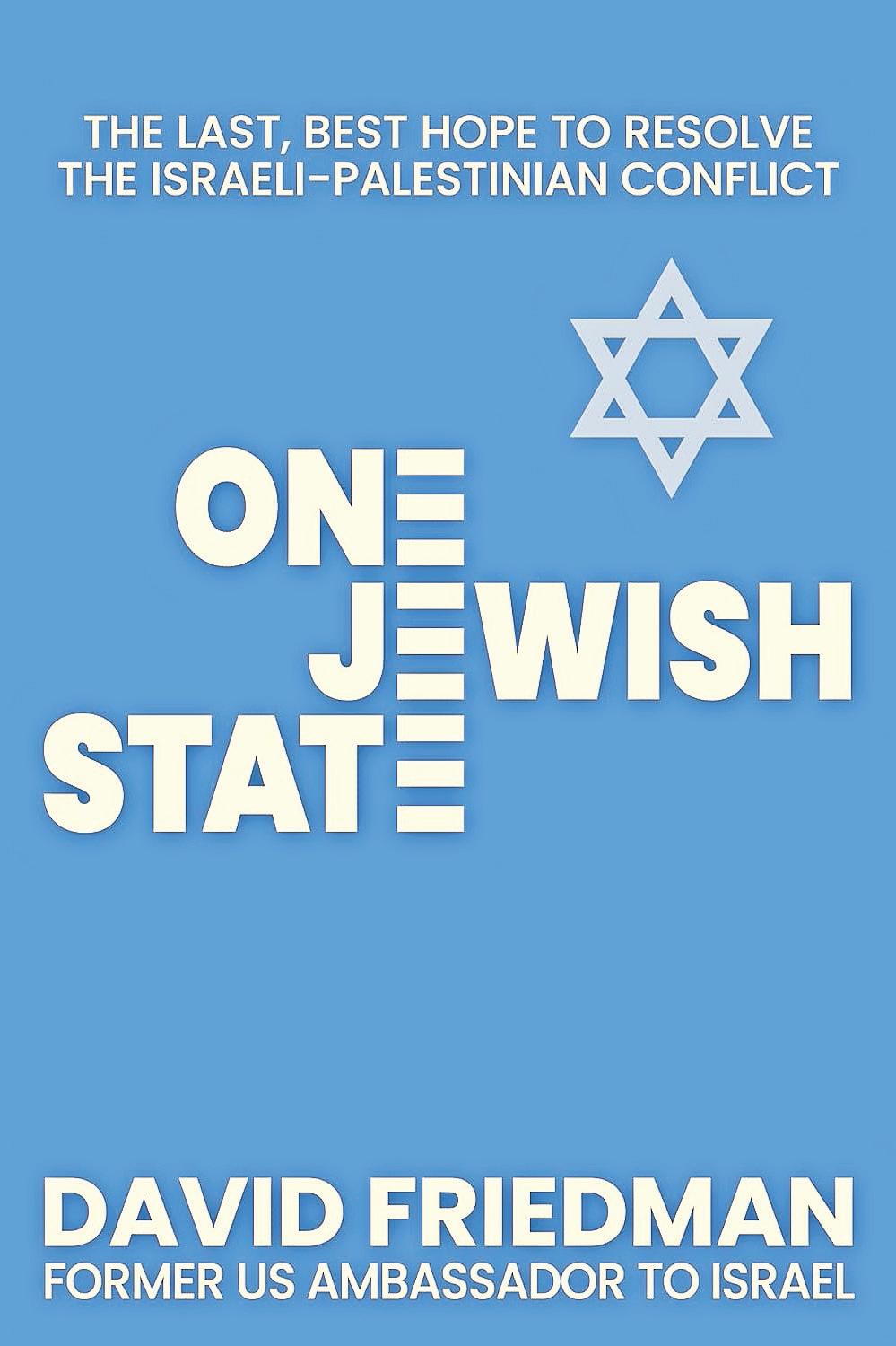

tinians be able to lead full lives of dignity and prosperity, ultimately producing a peaceful outcome for all.
Israel is a vibrant democracy “with a track record of respecting the civil, religious and human rights of its minority population, almost all of which is Arab.” Most Arab-Israeli citizens “patriotically support living in their country,” where their standard of living, opportunities and prosperity are orders of magnitude greater than that of their Arab neighbors in surrounding countries, including in the territories administered by Palestinians themselves.
The idea is to extend the same situation (Israeli sovereignty) to the Palestinian Arabs in Judea and Samaria. With one essential difference: Israeli Arabs are full citizens of Israel with equal rights. Palestinians in Judea and Samaria cannot be. A secure Jewish state cannot swap the security risk posed by Palestinians in Judea and Samaria for the demographic risk of making
them full citizens. They may become “residents” of Israel but cannot become full citizens.
Here we reach the point at which critics will explode, “Apartheid!”
Friedman addresses this through a deep dive into the case of Puerto Rico, which he sees as a possible model for the “One Jewish State.” Roughly, Puerto Ricans stand to the United States as Palestinians in Judea and Samaria might stand to Israel. The United States has sovereignty while Puerto Ricans have extensive rights of selfgovernment but not collective national rights to vote in US elections.
Why does it work? Because Puerto Ricans live better than they would if they were entirely independent. They derive political, economic and civil benefits, and enjoy all the same basic civil rights as any US citizen but pay less in federal taxes in exchange for not being full citizens. With Israeli sovereignty, Palestinians would have the civil rights guaranteed by Israel’s Basic Law on
Human Dignity without the collective right to self-determination; they would pay less Israeli taxes; and they would not vote in national elections.
Friedman also asks which is a better option for Palestinians: Creating a Palestinian state that is likely both to fail by every metric and be overrun by terrorists and thus reproducing Gaza or absorbing those living in Judea and Samaria under Israeli sovereignty and providing them resident status?
Friedman addresses complications with and obstacles to his analysis as there is no perfect solution, but it could work. Those who persist in calling it “apartheid,” Friedman insists, show “that they don’t understand apartheid.”
But would Palestinians ever accept such a scenario?
Friedman starts from the premise that the Palestinians, with their 100 years war on the Jews, have lost the privilege of their own state. There can’t be an Israeli victory in this war unless the Israelis know what they are fighting for, and Friedman makes a compelling case that that should be for the “One Jewish State.”
Currently, the dominant world opinion is that Judea and Samaria belong to the Palestinians as part of a “two-state solution.” It follows that Israel is in the wrong in “occupying” it and that Israel is unilaterally obligated to withdraw.
This worldview is contestable in every detail, but one advantage of having a single Jewish state is that it pushes back against all that. If Israel asserts its sovereignty over the territory, should it later choose to withdraw and should it choose to accept a “two-state solution” doing so would be a concession that then demands some concession from the other side in return.
Ironically, for those still clinging to a twostate solution, getting behind the one-Jewishstate idea might be the best, or only, way to get it. Andrew Pessin is a professor of philosophy at Connecticut College.


By Mike Wagenheim, JNS
Amid a surge in Jew-hatred globally since Hamas’s Oct. 7 terror attack in southern Israel, some Jewish educational leaders also see a chance for revitalization, as many in the diaspora are connecting increasingly with their Jewish identities.
The Israeli Ministry of Diaspora Affairs and Combating Antisemitism created a program called UnitEd, which works with more than 650 Jewish day schools worldwide and develops educational materials designed to strengthen Jewish identity and young Jews’ commitment to their communities.
After Oct. 7, “we started working very fast,” said Assaf Gamzu, director of education at the initiative.
The program began with PowerPoint presentations about Gaza and Hamas. “Really, very basic information,” Gamzu said.
Now the program includes English, French and Spanish newscasts for elementary school students, which UnitEd releases every two or three weeks about the war. The newscasts “give tools to educators and families on how to talk with younger children, who we don’t want to expose to the news,” Gamzu said.
The program worked on the materials with a psychologist, who “knows how to talk about these very charged subjects with children,” he added.
Another aspect of the program, Gamzu said, is building resilience.
“Unfortunately, in Israel, we’re very experienced in how to deal in a classroom setting with very stressful and traumatic situations,” he said, though in the diaspora, “Jewish educators nat-
urally had no experience, no idea how to deal with it.”
Jewish days schools have long done a “great job in terms of building that love and loyalty and commitment to Israel,” Rabbi Scot Berman, director of English-speaking countries at UnitedEd, told JNS.
“We are feeling they need support in helping transmit more content, so that their students are more literate about the situation, about the history,” he said, “so that when they are confronted, they know how to speak about and understand the complexity of what’s happening.”
At first, UnitEd translated materials from NATAL, an Israeli nonprofit that aids those hurt by national security traumas, and created webinars. But UnitEd staff, many of them immigrants to Israel who have extensive experience in the diaspora, anticipated the massive antisemitic backlash to Israeli military response to Oct. 7, according to Gamzu.
“Schools feel like a fortress now,” he said. “It’s not a theoretical discussion. For the kids, they just feel hatred and that’s definitely something that has to be addressed.”
There is a need to better understand the role that Israel plays in Jewish identity for individuals and families in the diaspora, according to Gamzu.
Berman told JNS that leading educators from across the globe visited Israel shortly after Oct. 7 for “an immersive leap to serve, essentially, as a think tank.” The group also visited sites devastated on Oct. 7 and Hostages Square in Tel Aviv. The educators “soaked up what was happening,” he said.
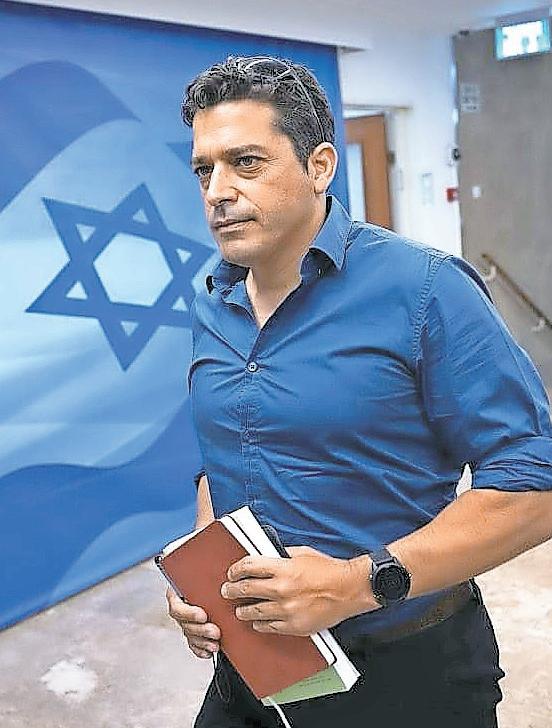
Teachers and researchers from that trip are preparing to publish a book about the ways that Jewish education has changed since Oct. 7, Berman said. He added that UnitEd ran a program with Hostages and Missing Families Forum, in which they solicited messages of hope for families of hostages from students in the diaspora, laminated the messages and hung them on trees in Hostages Square.
“It’s provided agency to these young kids, and we saw the effect of the amount of people that come by,” Berman said. “When I talk about it, I get emotional because it’s beautiful and so artistic.”
Visitors have begun hanging their own messages on the trees. “There’s


now a forest of wishes,” Berman said.
Hana Dorsman, the CEO of UnitEd, told JNS that when the nonprofit has seen a spectrum of responses from educators since the Oct. 7 terror attack.
“In the beginning, everybody was shocked and we started thinking with them, what are the most important things for Jewish kids and youth?” she told JNS.

She believes that 90% of the educators with whom UnitEd interacts have a strong Jewish identity, and that is important helping students prepare for college, where many campuses are hotbeds of antisemitic activities.
“You have to build the kids’ ability to be proud of who they are,” Dorsman said. “At the end of the day, that is the strongest answer to antisemitism.”
The first position is for two high school introductory chemistry classes (10th Grade) and one high school introductory biology class (9th Grade). The courses follow the New York State Regents curriculum.
The second position is for two periods of Algebra II math (11th Grade). The curriculum for the two classes is similar, with small changes to account for differing tracks. Appropriate candidates should know and feel comfortable with Algebra II material and be able to follow a curriculum that will be provided.
All classes are taught in the afternoons between the hours of 1:23 and 5:10 pm, four days a week, Monday-Thursday. Teachers are asked to be in the building by 12:45 for department meetings and preparation.
The ideal candidate will first and foremost be passionate about student growth as well as the teaching of Science and/or Math, and have a warm and engaging personality that can be used in developing meaningful relationships with each student. They will have mastery of educational pedagogy and the subject matter, but will also be strongly motivated by continued opportunities to grow and develop as an effective educator. We are looking for an experienced teacher leader who is comfortable working with both students and colleagues, and who is intentional about his/her educational approach.
are you interested in joining our team?
please send a cover letter and resume to sschenker@yuhsb.org
School Profile: Yeshiva University High School for Boys is distinguished as one of the premier Modern Orthodox Jewish High Schools in North America. Founded in 1916, our school has provided the template for a full featured dual curriculum education since its inception. We have graduated thousands of young men who have gone on to serve as leaders in communities around the world. Our program includes a complete College Preparatory program in addition to an intensive Judaic studies curriculum that focuses on textual and analytic skills. 100% of our graduates attend university, and 95% of them attend a yeshiva program in Israel for the gap year between high school and college.

“Ari” Brown is ghting hate and keeping our communities safe. In fact, he has sponsored legislation aimed at stopping hate and prosecuting terrorists and other criminals.
Sponsoring legislation that defunds colleges that allow anti-Semitic and other terrorist demonstrators to run rampant, harassing and terrorizing students.
Working to expand the number of o enses that can be prosecuted as hate crimes.
Supporting legislation to enhance police resources in order to keep our neighborhoods safer.
Fighting to x the broken “cashless bail” laws.



When the New York Times asked Sen. John Fetterman about a statement he made regarding civilians who were collateral casualties of Israel’s attack on Hezbollah pagers, the Pennsylvaia pro-Israel Democrat fired back.
“It was targeted for members of Hezbollah,” he said. “You know, no one uses beepers in that situation other than they were a member of Hezbollah.”
The interviewer noted that a young child was killed.
“Unfortunately, tragically, because Daddy was a member of Hezbollah. He brought that danger and evil into their home,” Fetterman said. “That’s what tragically resulted in that poor child’s death, and that’s what’s so terrible. She paid the price because her father was a terrorist for Hezbollah.”
Fetterman added that he thinks a two-state solution is an ideal but isn’t sure any longer that one is possible.
The Times interviewer asked Fetterman about “nuance,” about the “price” being paid in innocent life in Gaza. Fetterman said “there isn’t any nuance.”
“You think that the price that’s been paid is fair?” the interviewer asked.
“The price is terrible. It’s awful. That’s history and that’s war, and Israel was forced to fight an enemy that are cowardly,” he said. “They hide in tunnels. They hide in schools and in refugee camps, and they’re in those kinds of places.”
“That forces them to reach them — they have to go through these civilians,” Fetterman said. “That’s why they’re so evil, and that’s why that’s designed — the death and destruction and the stood that that’s going to happen. They don’t
“Some people blame Israel,” the senator
ship. The senator responded that it is “really curious” that many Democrats decided they couldn’t criticize Israel, so instead they went
“You can think he’s a bad leader or a bad

person or anything, but that happens to be the democratically-leader of Israel, and he’s on our side,” Fetterman said. “That’s our ally, and if you had to pick who you want to criticize, you should be criticizing Hamas. You should be calling out Iran, or you should be calling out Hezbollah. Certainly not our ally.”
Fetterman added there are “idiots in this nation” who chant “from the river to the sea.”
“At least own your antisemitism rather than trying to hide behind a turn on words,” he said. — JNS
Some 12,000 injured soldiers and security personnel have entered physical rehabilitation programs since the start of Israel’s war against Hamas on Oct. 7, 2023, including 900 wounded over the past month in Lebanon, according to data published on Tuesday by the Israeli Defense Ministry’s Rehabilitation Department.
Around 66% of the 12,000 are reservists, 93% are men and 51% are between the ages of 18 and 30.
Since the beginning of the “Swords of Iron” war, the department has received an average of a thousand wounded troops and security forces every month.

The number of injuries in the north surged by 150% from September to October following the start of ground operations in Southern Lebanon on Oct. 1, with 910 soldiers evacuated to hospital over this period.
Around 1,500 soldiers were injured twice during the war, meaning that they were treated at a rehab center, returned to service and then were injured again.
Official IDF data lists 5,184 injured soldiers since the beginning of the war, but the Rehabilitation Department figures also include security personnel such as Israel Security Agency forces, police officers, emergency response team members and others.
According to the Defense Ministry, roughly 5,200, or 43%, of those received at rehabilitation centers suffer from Post-Traumatic Stress Disorder (PTSD) and other psychological issues. Some 14% are classified as having moderate to severe injuries, including 23 with severe head injuries, 60 amputees and 12 who
their eyesight.
The Rehabilitation Department is also working with some 62,000 wounded veterans from previous wars. The forecast is for the department by 2030 to be treating some 100,000 people, with at least half suffering from PTSD and other psychological challenges.
The annual medical and financial cost for each wounded soldier is estimated at 150,000 shekels ($40,113).
While the Rehabilitation Department’s budget has increased by 1.9 billion shekels ($507.7 million) to 7.3 billion ($1.95 billion) since Oct. 7, 2023, the head of the department, Limor Luria, is warning that more money is needed.
“We need a budgetary response,” she was quoted by Ynet as saying on Tuesday.
“We have approached the Finance Ministry to enable us to respond to the high number of injured, which is expected to continue growing in the coming years, and to provide the best possible care for them,” she said. —JNS

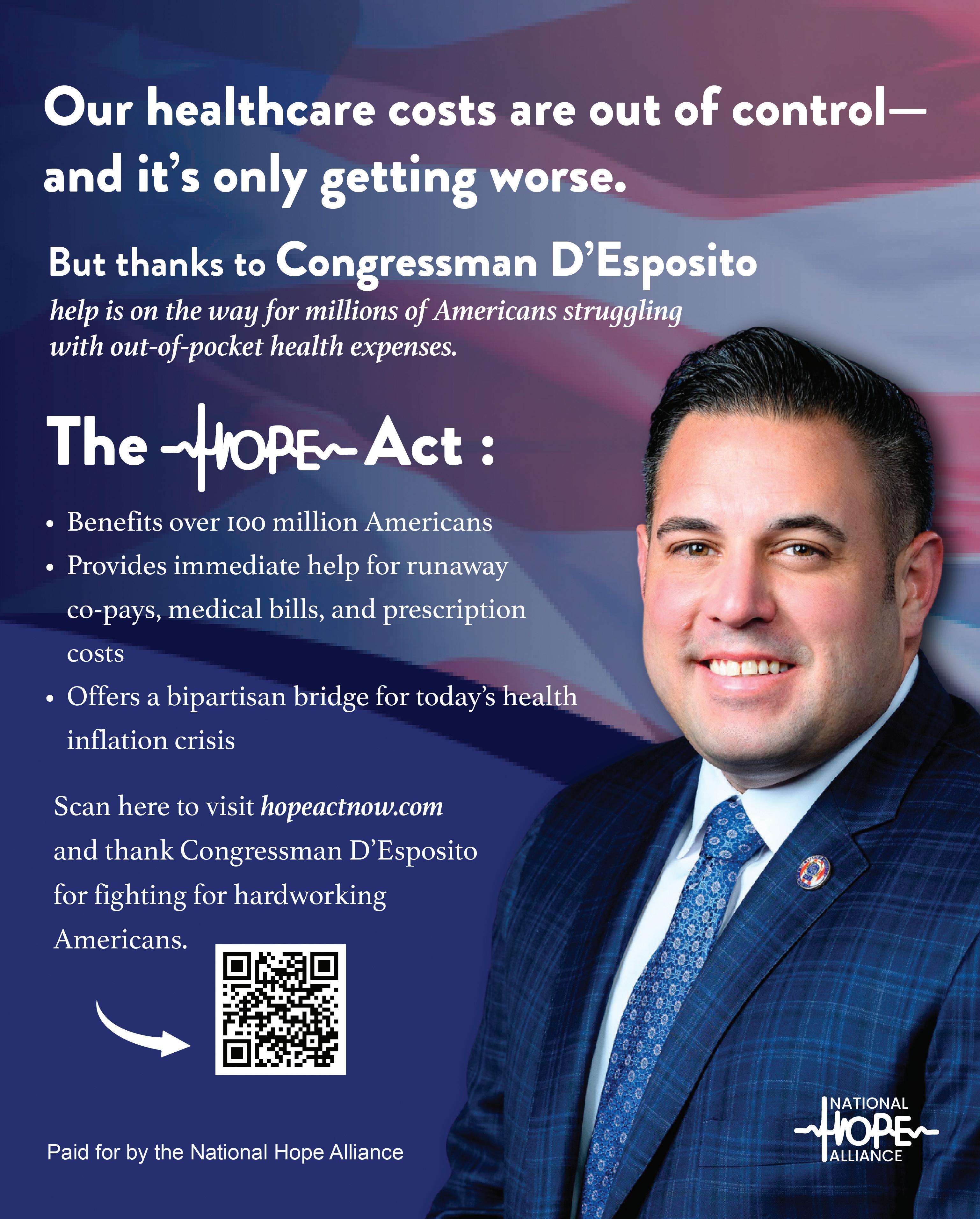



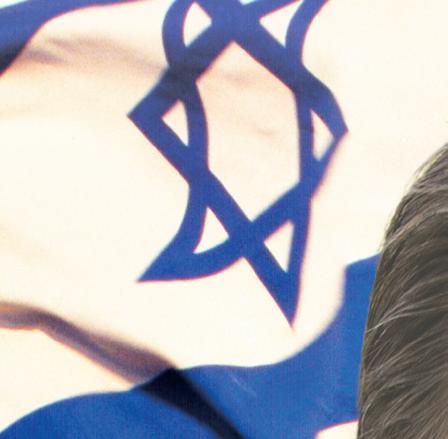




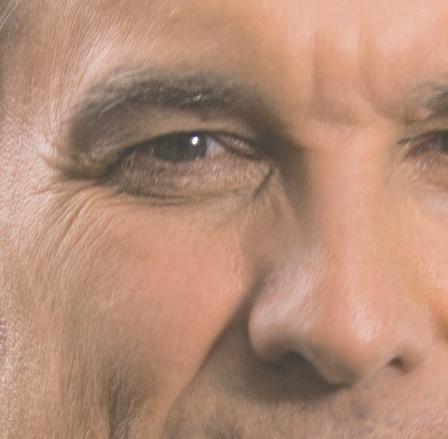














“Rep. Tom Suozzi has been a champion of the U.S.-Israel relationship.”




















– 2024 AIPAC Endorsement
Iran must be stopped now. Now is the time to degrade Iran’s nefarious network of terror once and for all. Israel’s willingness to respond to Iran’s attack must be embraced and supported by the United States and all freedom-loving countries.




















Suozzi’s support for Israel has been admirably strong and consistent, evidence of a deep personal commitment to the Jewish State... it is extremely important to bolster the pro-Israel, centrist majority among House Democrats. Having Tom Suozzi on Israel’s side in the halls of Congress will help offset the increasing influence of extreme left-wing progressives who are hostile to Israel and its interests. At the same time, we know that he will support all efforts to fight the growing antisemitism in this country.
01/24/2024






























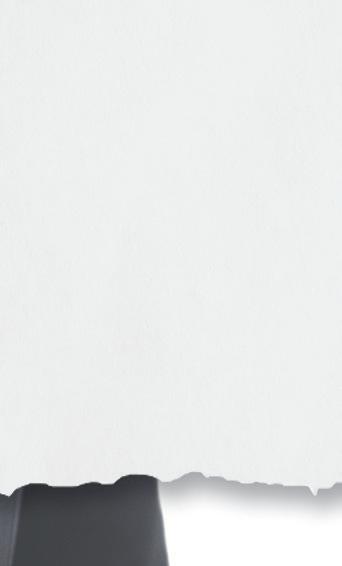












Kosher Kitchen
JoNI
SchocKEtt
Jewish Star columnist
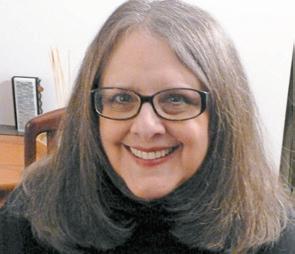
As autumn takes hold, the holidays end and normal routines return. The mornings are decidedly chilly, the sun sets earlier and we begin to think of the winter ahead. We can still buy really fresh produce, but those veggies are now deep greens and oranges and golds; colors that reflect the changing leaves are also the colors we cook with.
Autumn foods are delicious and nutritious. While the greens of summer offer lots of vitamin C and more, the golden colors of fall offer us lots of vitamin A, necessary for good eyesight. Maybe nature feels we need better eyesight when there is more darkness than light in our 24 hours. The sweetness of squashes and yams, pumpkins and more make it easy to get kids to eat these nutritious foods.
From muffins to curry to soups and stews, these golden gems are among the most versatile foods in the market. You can make a dinner roll or a dessert and then include the same veggie in the main dish and no one will be bored or say they have had too much!
If you are concerned about sprayed chemicals on foods, these are on the low end of foods that need to be organic, as most of them have hard skins that need to be removed before eating. I watch prices and buy according to price for hard-shelled squashes such as butternut, acorn, spaghetti, or sugar pumpkins. I do buy organic soft-shelled squashes such as Delicata. Enjoy these delicious additions to your diet. They are available year-round but are at their peak of market freshness now.
• 3 cups unbleached flour (you can use GF measure for measure flour)
• 1 Tbsp. plus 2 tsp. baking powder
• 1 Tbsp. plus 1 tsp. cinnamon
• 2 tsp. ginger
• OPTIONAL: 1/2 tsp. cloves
• 1/2 tsp. salt
• 2 cups firmly packed light brown sugar
• 1 cup, scant, granulated sugar
• 1 can (15 oz) pure pumpkin puree
• 1 cup Canola or corn oil
• 5 large or extra-large eggs
• 1 Tbsp. plus 2 tsp. pure vanilla extract
• OPTIONAL: 1 to 2 cups raisins

• 1 to 2 cups chopped walnuts
• 1/2 cup sunflower seeds, unsalted
• Streusel Topping:
• 1/4 cup unbleached flour
• 1/3 cup firmly packed dark brown sugar
• 1/3 cup raw pumpkin kernels or sunflower seeds, unsalted, or even nuts, if you prefer
• 7 Tbsp. butter, melted
Preheat the oven to 350 degrees. Lightly grease 3 (8x4) or 2 (5x10) bread pans. Set aside.
Place the flour baking powder, cinnamon, ginger, cloves and salt in a large owl. Gently mix to blend well.
Place the sugars, pumpkin, oil, eggs and vanilla in another bowl and whisk to blend until smooth.
Make a well in the flour and pour the liquid into the well. Mix with a fork until blended. Add the additional raisins, nuts, and sunflower seeds, if desired.
Make the streusel. Mix the ingredients together and sprinkle over the 2 or 3 breads.
Bake for 55 to 70 minutes, or until a tester comes out clean but moist. Makes 2 or 3 loaves. Wrap in plastic wrap and then foil to freeze for up to 3 months.
This is a delicious autumn addition to any meal. It is sweet, and maple-y and even squash haters, like my husband, love it. My very little grandchildren also love it and other than plain pasta, they don’t like much!
• 3 (20 oz each) boxes cut up butternut squash
• 1 stick trans-fat-free pareve margarine or butter
• 3/4 to 1 cup sugar, I prefer less
• 1/3 cup (generous) pure maple syrup
Grade A Dark Amber
• 3 to 4 extra-large eggs
• 1 Tbsp. pure vanilla extract
• 1 tsp. cinnamon, more to taste
• 1-1/4 cup unbleached flour
• 1-1/2 tsp. baking soda
• 1 to 1-1/2 cups unsweetened almond milk or whole milk, if dairy
OPTIONAL STREUSEL TOPPING:
• 1 cup flour
• 1/2 cup golden brown sugar, firmly packed
• 1 stick melted butter or pareve margarine
• 1/2 to 1 cup chopped pecans
Preheat the oven to 350 degrees. Generously butter a 4-quart glass or ceramic casserole dish and set aside.
Place the squash in a large pot and cover with water. Bring to a boil, reduce heat, cover and simmer for 25 to 40 minutes, until very soft. Remove from the heat. Carefully pour into a large strainer or colander and drain and cool for 15 minutes. Place the margarine or butter in a bowl and microwave until just melted. Set aside. Place half the squash in the bowl of a food processor or electric mixer and pulse until smooth. Scrape into a large bowl. Repeat with the rest of the squash and add to the bowl. Add the melted butter and mix. Add the sugar, maple syrup, eggs, and vanilla, and mix until blended. Add the flour, baking soda and cinnamon and mix well. Add the milk and mix slowly until well blended and smooth.
The mixture will be thick but fluid. Pour into the prepared pan and bake until golden brown and slightly puffed. Remove from the oven and let sit for 10 to 15 minutes to cool and set.
FOR THE STREUSAL: Mix all ingredients together and sprinkle over the squash before cooking.

NOTE: This is spoonable, not really made for cutting. If you want a thicker kugel, add another 1/2 cup of flour and reduce milk by about half.
• 1 lb. sweet potatoes, peeled and cubed
• 1 lb. butternut squash, peeled and cubed
• 1 cup walnuts or pecans
• 3 Tbsp. extra virgin olive oil or canola oil
• 2 Tbsp. fresh grated ginger
• 4 Tbsp. pure maple syrup or dark brown sugar
• 1/2 tsp. cinnamon
• 3/4 cup dried cranberries
Line a rimmed baking sheet with foil and add a sheet of parchment paper. Set aside. Preheat the oven to 400 degrees.
Place the cubed potatoes and squash in a plastic bag. Add the oil and close the bag. Gently shake to cover. Mix the ginger, syrup, and cinnamon in a small bowl. Pour into the bag and close it. Gently shake to coat evenly.
Pour onto the prepared baking sheet and drizzle the liquid over the veggies. Roast for 30 minutes, until light golden and easily pierced. Remove from the oven, sprinkle the cranberries and nuts evenly over the squash and potatoes, place back into the oven and bake for another 10 minutes. Serves 6 to 10.












































































Power outages are a reality, especially during a storm or other weather events. One of the most frustrating issues can be not knowing when power will be restored.
The good news is that, for PSEG Long Island customers, a power outage doesn’t have to leave you completely in the dark. That’s because the Long Island company created a free Outage Tracker, accessible from any smartphone or mobile-enabled device on our mobile app.
PSEG Long Island used customer feedback from J.D. Power surveys, research, and focus groups to help them design the app.
“Our intention is to reduce the stress and anxiety of an outage by enabling customers to closely track the progress of their restoration, all within the free, convenient PSEG Long Island mobile app,” says Larry Torres, Sr. Director, Emergency Preparedness and Logistics.
It’s as easy to use as it is to download. And once it’s installed on your device, if you have a power outage, you have access to report outages and track updates.
As PSEG Long Island begins the restoration process, you receive notifications on the Outage Tracker. These show everything from confirmation that your outage report was received, to damage assessments, to repair alerts and an estimate of when power will be restored.
“The sooner we know about specific outages, the quicker we can react and restore power,” says Michael Presti, Director, Customer Experience and Marketing.
The PSEG Long Island Outage Tracker provides customers with:
Accessibility: Even if someone loses power, they can access the Outage Tracker on their mobile device as long as they have cell service. However, they need to download it before an event to ensure they’re prepared.
Reporting capability: Customers can report partial or full power outages. In the case of downed lines, the app provides a phone number to call. This immediate reporting helps PSEG Long Island respond more efficiently to restore service.
Year-round reliability: Because outages can sometimes occur even when the weather is not a contributing factor, the Outage Tracker helps people stay connected and able to report issues at any time.
We live in a world where we have more information at our fingertips than ever before. It just follows that having some control and knowledge about power outages is critical to our peace of mind and ability to plan, be heard, and feel safe. So be prepared, and learn more about the free PSEG Long Island mobile app at psegliny.com/app.


A power outage doesn’t have to leave you feeling powerless. Be prepared. Download our free mobile app with Outage Tracker. You can report outages and track restoration progress. Because knowing is power.

Continued from page 12
• 1 butternut squash, about 2 to 4 lbs.
• 1/4 cup extra virgin olive oil
• 1 stalk celery, finely chopped
• 2 medium onions, finely minced
• 3 oz mushrooms, diced or sliced
• 6 scallions, minced
• 1/2 to 2/3 cup dried snipped apricots or craisins
• Fresh sage, to taste
• 1/4 tsp. cinnamon
• 2 cups breadcrumbs, divided
• 1/4 stick pareve non-hydrogenated margarine
• Salt and pepper to taste
• OPTIONAL: Grated Parmesan Cheese
• Chickpeas
• Torn baby spinach leaves or baby kale leaves
Pre-heat the oven to 325 to 350 degrees. Grease a 3-quart casserole dish. Set aside. Cut the butternut squash in half lengthwise, remove the seeds and place cut side down in the prepared casserole dish. Add a quarter-inch of water to the pan and bake until the skin easily indents when touched with the back of a spoon. Remove from the oven and let cool. You want to cook this slowly so the cut side does not burn.
Meanwhile, heat a large skillet and add the olive oil. Add the onions and sauté until lightly golden. Add the celery and sauté another minute. Add the mushrooms and scallion and sauté for 2 minutes. Add the snipped apricots or craisins and mix well. Add the minced sage, and cinnamon and mix well. Season to taste.
Scoop out the squash, leaving a 1/3-inch shell and keeping the shell whole. Place the flesh in the bowl of a processor and pulse until smooth. Scrape into a bowl. Add the onion mixture and 1/2 to 3/4 cup of breadcrumbs, apricots

and salt and pepper, and mix. Taste and adjust seasonings.
Mound the stuffing into the shells and place back into the casserole dish. Mix the remaining breadcrumbs with the melted margarine and mix well. Sprinkle over the stuffed squash and bake until golden. Cut each squash half in half lengthwise. Serves 4 as a side dish or two as a main dish with other vegetables.
This is delicious with or without the pastrami.

• 2 lbs. Delicata Squash
• 2 red onions
• 3 Tbsp. extra virgin olive oil
• 2 to 3 sprigs fresh rosemary leaves
• 1/4 to 1/3 cup pure maple syrup
• OPTIONAL: 1/4 to1/2-pound lean pastrami cut into 1/2-inch pieces
Line a large, rimmed baking sheet with foil and then add a piece of parchment. Set aside. Preheat the oven to 400 degrees. Cut the squashes in half, lengthwise, scrape out the seeds and cut into crosswise slices about 1/2-inch thick. If the squashes are large, cut each half in half lengthwise before cutting the slices. Slice the onions in half and then in quarters.
Cut each quarter into thin slices.
Place the squash into a large bowl. Add the onion slices and the olive oil. Mix using your hands (the olive oil is a great skin conditioner!) breaking the onion slices into single pieces. Add the maple syrup and toss to coat.
Spread in a single layer on the baking sheet, place the rosemary on the squash and roast for 20 to 30 minutes, until the pieces have some charred spots on the edges.
Remove from the oven and add the pastrami. Mix with a spoon and place back in the oven for another 10 to 15 minutes until heated and the squash is tender. Remove the rosemary before serving.












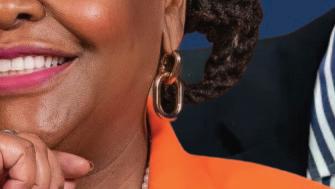










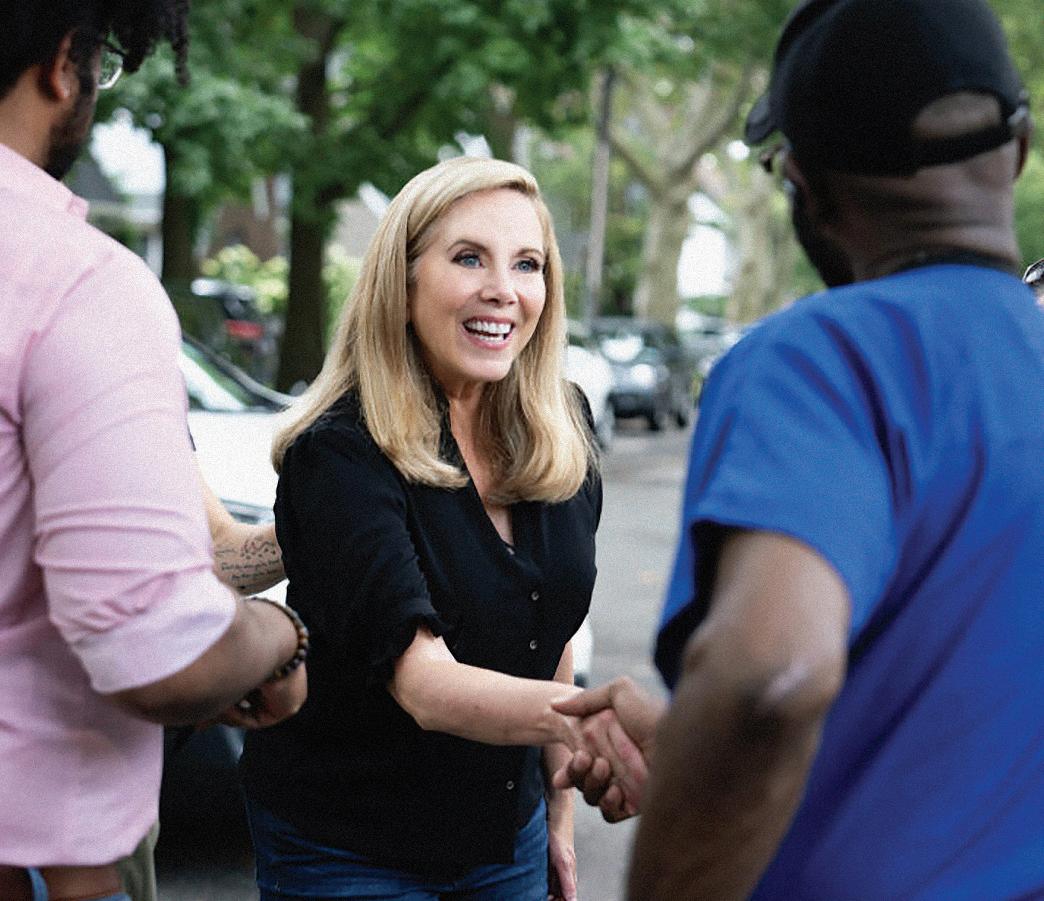
Party
Democratic
Republican
Conservative
Working Families
Common Sense

Presidential Electors for President (Vote for One)
Kamala Harris
Donald J. Trump
Donald J. Trump
Kamala Harris
Some Democrats are too far left.Some Republicans are too far right.But some candidates just make COMMON SENSE.
The Common Sense Party looks at both Democrats and Republicans running for office. And then nominates the one who’s most reasonable, who thinks for themself. Who can compromise to get things done. In Nassau County, that’s Laura GIllen.
So this November, find the "Common Sense Party" on your ballot.
Representative in Congress (4th District) (Vote for One)
Laura Gillen
Anthony D’Esposito
Anthony D’Esposito
Laura Gillen


At Episcopal Health Services, we recognize that women’s health needs are unique. That is why we offer comprehensive services including:


Women's Health Services Imaging Services
Breast Cancer Support Group
Breast Surgical Oncology
Doula Services
Gynecology/Oncology
Maternal-Fetal Medicine
Nutrition
Obstetrics/Gynecology
Urogynecology
Bone Density
Mammography
Stereotactic Breast Biopsy
Gynecology/Oncology
Ultrasound
Nutrition
US Guided Breast Biopsy
Our physicians approach healthcare with each patient’s specific needs in mind. New patients are welcomed and same-day appointments are available!*
To schedule an appointment, call 718-869-7500. *Same day appointment availability not guaranteed.


Jewish Star Torah columnists:
•Rabbi Avi Billet of Anshei Chesed, Boynton Beach, FL, mohel and Five Towns native •Rabbi David Etengoff of Magen David Yeshivah, Brooklyn •Rabbi Binny Freedman, rosh yeshiva of Orayta, Jerusalem
Contributing writers:
•Rabbi Sir Jonathan Sacks zt”l,
former chief rabbi of United Hebrew Congregations of the British Commonwealth •Rabbi Dr. Tzvi Hersh Weinreb, OU executive VP emeritus •Rabbi Raymond Apple, emeritus rabbi, Great Synagogue of Sydney •Rabbi Yossy Goldman, life rabbi emeritus, Sydenham Shul, Johannesburg and president of the South African Rabbinical Association.
Contact our columnists at: Publisher@TheJewishStar.com
Five Towns Candlelighting: From the White Shul, Far Rockaway, NY
Fri Nov 1 / Tishrei 30
Fri-Sat Rosh Chodesh • Noach Candles: 5:32 • Havdalah: 6:40
Fri Nov 8 / Cheshvan 7
Lech Lecha Candles: 4:24 • Havdalah: 5:32
Fri Nov 15 / Cheshvan 14
Vayera Candles: 4:18 • Havdalah: 5:26
Fri Nov 22 / Cheshvan 21
Chayei Sara Candles: 4:13 • Havdalah: 5:22
Fri Nov 29 / Cheshvan 28
Shabbos Mevarchim • Toldos Candles: 4:10 • Havdalah: 5:19
Fri Dec 6 / Kislev 5
Vayetzei Candles: 4:09 • Havdalah: 5:18
rabbi Sir JonaThan
zt”l

Iasked the Catholic writer Paul Johnson what had struck him most about Judaism, during the long period he spent researching it for his masterly “A History of the Jews?” He replied in roughly these words: “There have been, in the course of history, societies that emphasized the individual — like the secular West today. And there have been others that placed weight on the collective — communist Russia or China, for example.”
Judaism, he continued, was the most successful example he knew of that managed the delicate balance between both, giving equal weight to individual and collective responsibility. Judaism has been a religion of strong individuals and strong communities. This, he said, was very rare and difficult, and constituted one of our greatest achievements.
It was a wise and subtle observation. Without knowing it, he had in effect paraphrased Hillel’s aphorism: “If I am not for myself, who will be (individual responsibility)? But if I am only for myself, what am I (collective responsibility)?” This insight allows us to see the argument of Parshat Noach in a way that might not have been obvious otherwise.
The parsha begins and ends with two great events, the Flood on the one hand, Babel and its tower on the other. On the face of it they have nothing in common.
•The failings of the generation of the Flood are explicit. “The world was corrupt before G-d, and the land was filled with violence. G-d saw the world, and it was corrupted. All flesh had perverted its way on the earth” (Gen. 6:11-12). Wickedness, violence, corruption, perversion: this is the language of systemic moral failure.
•Babel by contrast seems almost idyllic. “The entire earth had one language and a common speech” (Gen. 11:1). The builders are bent on construction, not destruction. It is far from clear what their sin was. Yet from the Torah’s point of view Babel represents another serious wrong turn, because G-d scatters all the builders, and immediately thereafter He summons Abraham to begin an entirely new chapter in the religious story of humankind. There is no Flood — G-d had, in any case, sworn that He would never again punish humanity in such a way. As He said:
Never again will I curse the soil because of man, for the inclination of man’s heart is evil from his
Judaism has been a religion of strong individuals and strong communities.
youth. I will never again strike down all life as I have just done. Gen 8:21
But it is clear that after Babel, G-d comes to the conclusion that there must be another and different way for humans to live.
Both the Flood and the Tower of Babel are rooted in actual historical events, even if the narrative is not couched in the language of descriptive history. Mesopotamia had many flood myths, all of which testify to the memory of disastrous inundations, especially on the flat lands of the Tigris-Euphrates valley. (See Commentary of R. David Zvi Hoffman to Genesis 6, which suggests that the Flood may have been limited to centers of human habitation, rather than covering the whole earth).
Excavations at Shurrupak, Kish, Uruk, and Ur — Abraham’s birthplace — reveal evidence of clay flood deposits. Likewise the Tower of Babel was a historical reality. Herodotus tells of the sacred enclosure of Babylon, at the centre of which was a ziggurat or tower of seven stories, 300 feet high. The remains of more than thirty such towers have been discovered, mainly in lower Mesopotamia, and many references have been found in the literature of the time that speak of such towers “reaching heaven”.
However, the stories of the Flood and Babel are not merely historical, because the Torah is not history but “teaching, instruction.”
They are there because they represent a profound moral-social-political-spiritual truth about the human situation as the Torah sees it. They represent, respectively, precisely the failures intimated by Paul Johnson. The Flood tells us what happens to civilization when individuals rule and there is no collective. Babel tells us what happens when the collective rules and individuals are sacrificed to it.
It was Thomas Hobbes (1588-1679), the thinker who laid the foundations of modern politics in his classic “Leviathan” (1651), who — without referring to the Flood — gave it its best interpretation. Before there were political institutions, said Hobbes, human beings were in a “state of nature.”
They were individuals, packs, bands. Lacking a stable ruler, an effective government and enforceable laws, people would be in a state of permanent and violent chaos — “a war of every man against every man” — as they competed for scarce resources. There would be “continual fear, and danger of violent death; and the life of man, solitary, poor, nasty, brutish, and short.” Such situations exist today in a whole series of failed or failing states. That is precisely the Torah’s description of life before the Flood. When there is no rule of law to constrain individuals, the world is filled with violence. Babel is the opposite, and we now have important historical evidence as to exactly what was meant by the sentence, “The entire land had one language and a common speech.” This may not refer to primal humanity before the division of languages. In fact, in the previous chapter the Torah has already stated, “From these the maritime peoples spread out into their lands in their clans within their nations, each with its own language” (Gen. 10:5).

The Talmud Yerushalmi, Megillah 1:11, 71b, records a dispute between R. Eliezer and R. Johanan, one of whom holds that the division of humanity into seventy languages occurred before the Flood.
The reference seems to be to the imperial practice of the neo-Assyrians, of imposing their own language on the peoples they conquered. One inscription of the time records that Ashurbanipal II “made the totality of all peoples speak one speech.”
Acylinder inscription of Sargon II says, “Populations of the four quarters of the world with strange tongues and incompatible speech … whom I had taken as booty at the command of Ashur my lord by the might of my scepter, I caused to accept a single voice.” The neo-Assyrians asserted their supremacy by insisting that their language was the only one to be used by the nations and populations they had defeated. On this reading, Babel is a critique of imperialism.
There is even a hint of this in the parallelism of language between the builders of Babel and the Egyptian Pharaoh who enslaved the Israelites. In Babel they said, “Come, [hava] let us build ourselves a city and a tower … lest [pen] we be scattered over the face of the earth” (Gen. 11:4). In Egypt Pharaoh said, “Come, [hava] let us deal wisely with them, lest [pen] they increase so much.” (Ex. 1:10).
The repeated “Come, let us … lest” is too pronounced to be accidental. Babel, like Egypt, represents an empire that subjugates entire populations, riding roughshod over their identities and freedoms.
If this is so, we will have to re-read the entire Babel story in a way that makes it much more convincing. The sequence is this: Genesis 10 describes the division of humanity into seventy nations and seventy languages. Genesis 11 tells of how one
imperial power conquered smaller nations and imposed its language and culture on them, thus directly contravening G-d’s wish that humans should respect the integrity of each nation and each individual. When at the end of the Babel story G-d “confuses the language” of the builders, He is not creating a new state of affairs. He is in fact restoring the old.
Interpreted thus, the story of Babel is a critique of the power of the collective when it crushes individuality — the individuality of the seventy cultures described in Genesis 10.
(A personal note: I had the privilege of addressing 2,000 leaders from all the world’s faiths at the Millennium Peace Summit in the United Nations in August 2000. It turned out that there were exactly 70 traditions — each with their subdivisions and sects — represented. So it seems there still are seventy basic cultures).
When the rule of law is used to suppress individuals and their distinctive languages and traditions, this too is wrong. The miracle of monotheism is that unity in Heaven creates diversity on earth, and G-d asks us (with obvious conditions) to respect that diversity.
So the Flood and the Tower of Babel, though polar opposites, are linked, and the entire Parsha of Noach is a brilliant study in the human condition. There are individualistic cultures and there are collectivist ones, and both fail, the former because they lead to anarchy and violence, the latter because they lead to oppression and tyranny.
Paul Johnson’s insight turns out to be both deep and true. After the two great failures of the Flood and Babel, Abraham was called on to create a new form of social order that would give equal honor to the individual and the collective, personal responsibility and the common good. That remains the special gift of Jews and Judaism to the world.
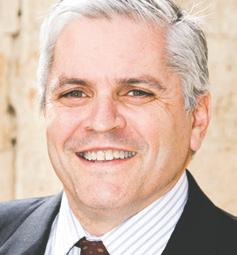
He looked like a teenager, until he began to tell his story, and then his face took on a sadness that aged him.
Avi (not his real name) had only recently finished his regular army stint in the IDF and was due to join a special educational mission to work with less-affiliated Jewish teens in South Africa.
The night before his flight, he received a phone call with emergency call-up orders, and the next morning, instead of buckling his seatbelt on an airplane, he found himself on the
Lebanese border at the beginning of the second Lebanon war. It was the summer of 2006.
For a few weeks his battalion was kept in reserve. Finally, the commander gathered them together and announced they were being given a 20 hour leave to see their families; it was clear they would be heading into Lebanon the next day, and they all went home with heavy hearts and much anticipation.
For Avi, it was one of the most intense experiences he had ever had. The abrupt call-up had left him without any chance to say goodbye to his friends and family, including siblings who had been away from home, and when the family heard he was coming home for an evening, everyone dropped everything, and the evening turned into a mass reunion.
It was clear to all present that this goodbye was different from anything they had expe-
rienced before, as they might never see each again. How, indeed, do you say goodbye to your son who is headed back to combat in wartime?
The following morning, Avi’s father insisted on driving him up to the border and was uncharacteristically quiet during the drive. When Avi’s dad got out of the car to give his son a farewell hug, Avi saw the tears in his father’s eyes. When you only have a moment — how do you say goodbye to your son, knowing you may never see him again, and how do you say thank you to your father for a lifetime of love?
And as Avi walked through the base parking lot towards the main gate, he passed a very pregnant young woman, sitting in her car weeping, having obviously just bid a similar farewell to her husband, and then he passed a set of parents in a long powerful embrace with their son, and then he looked around the mas-
sive parking area, suddenly realizing that for as far as his eye could see, there were hundreds of cars, repeating this scene.
This week’s portion, Noach, contains one of the most challenging stories in the entire Torah: the story of the Flood.
Essentially, G-d created a world and placed us in it, but somehow we messed it up and G-d decided to destroy the world and start over.
But if G-d needed to destroy the world, then His experiment (of creating the world in the first place) was a failure, which might imply that G-d had an idea that didn’t work. This makes no sense, because if G-d knows everything, then G-d knew this wouldn’t work, so why create it in the first place?
Finally, when G-d decided to destroy the world, He doesn’t just destroy mankind, but all
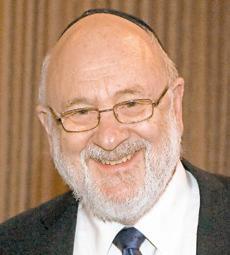
The French poet Baudelaire once remarked that the devil’s greatest success is his ability to convince us that he does not exist.
Whereas Judaism does not believe in the devil quite as Baudelaire does, it does believe that there is a “devilish” force called the yetzer hara within each of us, and that that force works in very subtle ways. At the same time, with ambivalence, we definitely do tend to believe that this yetzer does not exist.
Jewish writings through the ages have debated the nature of this force. All these writings ulti-
mately trace back to a verse in this week’s Torah portion, Parshat Noach: “The devising of man’s mind are evil from his youth.” (Genesis 8:21)
And to a similar verse in last week’s Torah portion: “The L-rd saw how great was man’s wickedness on earth, and how every plan devised by his mind was nothing but evil all the time.” (Genesis 6:5)
Thus, there most assuredly is an inclination for evil in each of us. He or she who wishes to live the life of a good person is well advised to guard against this natural inclination. This yetzer-force rarely commands us directly to do what is wrong. Instead, it tries to craftily delude us into thinking that what is wrong and evil is right and good.
A favorite strategy for the yetzer is to persuade us that it seeks the same ends and objectives as G-d does, but that alternate ways
of achieving those ends are also legitimate. Take spirituality, for example. How does one achieve a sense of spirituality?
For Judaism, spirituality and the emotions which accompany it can only be achieved through hard work: prayer, study, sacrifice, and above all, charity and compassion. No easy “grace!” The yetzer, while not denying the value of spirituality, tempts us with short cuts, and cheap and ersatz methods to achieve the same results as the more arduous methods prescribed by the Torah.
A wonderful illustration of this dynamic is found in this week’s Torah portion, just after the story of the great Flood. Noah and his family are beginning anew, rebuilding their lives, rebuilding the world. What is the first thing Noah does? He plants a vineyard. His grapes grow and ripen, he makes wine and drinks it and gets drunk.
What prompted Noah to make wine his first priority? Let me suggest the following imaginary scenario to answer that question.
Noah walked with G-d. He enjoyed the sense of spirituality for which many of us yearn. He experienced a spiritual “high.” In the past, he achieved that level of spirituality by virtue of hard work: obedience, construction of the Ark, gathering the animals of the world, tending to them, offering sacrifices.
Along came Noah’s yetzer-force, and said, “Noah! There must be an easier way! You can achieve the same spiritual high, the same sense of wholeness and holiness without all that work. All it will take is a few drinks of one of G-d’s own juices. Plant a vineyard, make some wine and drink it and you will feel all the good feelings

The verse in Yeshayahu 54:9 twice contains this curious phrase: “For this is to Me [as] the waters of Noah, as I swore that the waters of Noah shall never again pass over the earth, so have I sworn neither to be wroth with you nor to rebuke you.”
Waters of Noach?
This week’s parsha makes it clear that the waters come from the heavens; in other words, they are more accurately “G-d’s waters.” G-d
told Noach he was going to send the flood and destroy the world. If anything “belongs” to Noach, it is the ark that he took many decades to build. How are the waters his?
Rashi famously notes two opinions when he compares Avraham and Noach — either that Noach was righteous only in his generation (but had he lived in Avraham’s time he’d have been nothing special), or that Noach was an extremely righteous man no matter in which time period he might have found himself.
One major difference between Avraham and Noach is that when confronted with the proposition that there was to be a destruction, Avraham prayed on behalf of Sodom, while Noach said nothing on behalf of the people of
his era, simply going about his business. In his book “Me’otzarot Bereishit,” Rabbi Yeshayahu Maleyeff (1909-1998) says it’s an unfair argument. Noach was told by G-d, “The end of humanity is before Me. I’m going to destroy the earth” (6:13). Avraham was told, “The cries of Sodom have reached Me. I’m going to descend to see what’s going on” (18:20-21).
Before I explain the difference, I’ll give another example.
Moshe is told, “Leave Me, so My wrath can flare up against them and I will destroy them” (Shmot 32:10). Similarly, in the aftermath of the Korach story, as G-d begins to send a plague to kill those complaining about what had just transpired, He says to Moshe
and Aharon, “Get away from this rabble so I may destroy them in an instant.”
The difference is that in Noach’s case, he was essentially told, “This is going to happen and there’s nothing you can do about it.” In Avraham’s case, and in Moshe’s case, the pending destruction wasn’t clearly going to happen. Sodom needed to be examined.
Twice it seems that the destruction facing the people was conditioned on Moshe leaving the space he was occupying. Such a concept is certainly unnecessary — meaning, if G-d wants to destroy and wants to spare Moshe, He could certainly make that happen without Moshe moving. So if Moshe needed to move, it is clear that G-d was opening the door for a prayer or objection to take place.
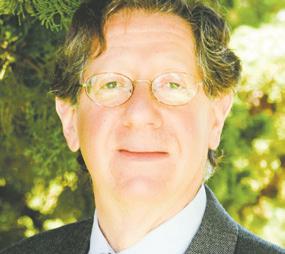
When we think of Noach we tend to envision a flood and a world covered with water. However, in the historical sense, the biblical saga of Noach is transcended by a short listing of mitzvot that, if observed, can properly define the civilization quality of our world.
In an essay titled “Across the Great Divide: Between Jew and Non-Jew,” in his commentary on Genesis, “Unlocking The Torah Text” (OU Press Urim Publishing House, 2007), Rabbi
Shmuel Goldin recounts that after chronicling the world’s creation and man’s early generations, “the Torah’s range narrows as it begins to tell the story of Avraham and his descendants, the chosen Jewish nation.”

“Before this shift takes place, however, a universal moral code for the world is laid out by G-d,” writes Rabbi Goldin, who was as spiritual leader of Congregation Ahavath Torah in Englewood for
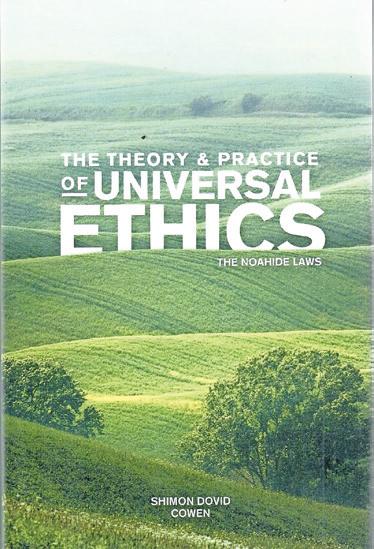
33 years before making aliyah in 2017.
“This code, referred to in rabbinic literature as Sheva Mitzvot B’nai Noach (the seven mitzvot of the children of Noach), or the Noachide code, is derived from a passage found at the end of the Noach narrative and consists of seven basic commandments.
Taken together, these commandments form a moral blueprint for all civilizations.
“The seven Noachide laws are the follow-
ing: do not steal, do not kill, do not eat from the limb of a living animal, do not commit acts of sexual immorality, do not practice idolatry, do not blaspheme G-d, and establish courts of law.”
The above serves as a prelude to Rabbi Goldin’s expansive explanation as to how these laws impact the civilization structure of mankind. The open nature of Rabbi Goldin’s presentation can be gleaned by reading his concluding summation entitled, “Points to Ponder,” wherein he states the following:
“Partially as a result of our turbulent history and of the torment that we have received at the hands of others, we have lost sight of the true traditional Jewish attitude towards the non-Jew. Too often, prejudiced and intolerant
Here’s how to reach The Jewish Star — Write: Editor@TheJewishStar.com. Call:
Editor & Publisher: Ed Weintrob
516-622-7461 ext 291
Jewish Star Associate: Nechama Bluth, 516-622-7461 ext 241.
Content: The Publisher endeavors to ensure that our content is within the bounds of normative halachah and hashkafah. Anyone who feels anything we publish may be inappropriate in this regard is urged to bring the item in question to the attention of the Publisher. Advertising is accepted at the sole discretion of the Publisher and should conform to standards appropriate for distribution in an Orthodox community.
Send us your news! Editor@TheJewishStar.com
Advertising: Publisher@TheJewishStar.com
Kashrut: The Jewish Star is not responsible for the kashrut of any product or establishment featured in its pages. If you have questions regarding any establishment or product, including its supervision, please consult your rabbi for guidance.
Submissions: All submissions become the property of The Jewish Star and may be edited and used by the Publisher, its licensees and affiliates, in print, on the web and/or in any media that now exists or will exist in the future in any form, including derivative works, throughout the world in perpetuity, without additional Published weekly except during certain religious and civil holidays by The Jewish Star LLC New York City office: 5676 Riverdale Ave Suite 311, Bronx NY 10471 • LI office: 2 Endo Blvd, Garden City NY 11530
authorization or compensation. The individual or entity submitting material affirms that it holds the copyright or otherwise has the right to authorize its use in accordance with The Jewish Star’s terms for submissions.
Opinions: Views expressed by columnists and other writers do not necessarily reflect the position of the Publisher or of The Jewish Star LLC.
Distribution: The Jewish Star is available free in kosher food establishments, stores, synagogues, and curb-side
This

As I survey the horrendous damage unleashed by Hamas on Oct. 7, 2023, I have many sources of depression.
Of course, I am depressed by the loss of Israeli life, the loss of Palestinian life, the destruction of much of Gaza, the continuing horror of the hostages, the abject brutality of Hamas, the array of Hezbollah missiles and drones still arrayed against Israel, the (at best) postponement of an Israel-Saudi Arabia peace accord, and the outbreak of antisemitism, including the tremendous growth of anti-Israel sentiment around the world.
Like countless others, I am deeply wounded by all of this, but I am also depressed by something else: The fact that despite all the horror, nothing fundamental has changed. Yes, Israel will, I fervently hope and pray, disarm Hamas, Hezbollah, the Houthis and Iran. But I remain depressed.
I cite as evidence a piece from The Economist (Oct. 5-11). I could cite a plethora of other sources and cite The Economist only because it happens to be at hand. This is the point. There is no special insight or revelation in its article, “After Gaza, how do young Palestinians want to build their state?” The assumptions in the article are pretty much the same anywhere else that articulates a current Palestinian point of view.
A slew of assumptions color a variety of conflicting Palestinian policy ideas. It’s not the policies that ultimately count but the assumptions, the underlying premises.
My main purpose is not to lay bare the journalistic bias that pervades this article, to focus not mainly on the journalists but on the thinking they present.
The article says of young Palestinians that they are dismissive of an aging leadership and “seek new ways to pursue their century-long struggle.”

Where did things stand a century ago in Palestine? Did conditions there in 1924 warrant an Arab “struggle?”
First: The area in 1924 was called Palestine, not Israel. There was no modern State of Israel. Even the British in the Balfour Declaration (1917) did not promise Palestine to the Jews as a Jewish state; rather, it promised a Jewish homeland in Palestine. It explicitly acknowledged the presence of local non-Jewish populations and conditioned its promise to the Jews on the respect for the religious and civil rights of the local populations. So, the British did not impose a “struggle.”
Second: The local Arab population outnumbered the Jewish population by about five to one! So, demographics did not impose a struggle.
Third: The British envisioned a council of governance run jointly by the Jews and the local Arabs. This governing council would be the first opportunity for self-rule by the local Arab population. Before the British conquered Palestine in 1918, it was controlled by the Ottoman Empire. Under the Ottomans (and before them, the Mamluks, Crusaders, etc.), Arabs had no rights.
What did the super-majority Arab community in Palestine do with the British proposal for joint, Jewish-Arab self-rule? The Arabs boycotted it. They would not sit together with the Jews. They would not accept a Jewish corporate presence in Palestine of any size, nature
or authority. Rather, they themselves created a “struggle” — against a small, minority Jewish presence in the area. No objective conditions required a struggle.
The Palestinian vision, going back a full century, is binary. Black and white. Us versus them. No sharing. No joint anything. I don’t see anything in the current war changing that. That’s depressing.
The Economist article states: “Many feel that the shock [of the current war] is already as awful as the nakba (catastrophe) of 1948, when Israel was formed and around 15,000 Palestinians were killed and some 750,000 were driven from their homes or fled.”
Glaring here is the utter absence of agency, as if this catastrophe just rolled over the local Arabs — and so who can blame them for their enduring resentment and resistance?
No acknowledgement that not a single Arab needed to die or leave his home; that war was declared by Arab states against Israel, not the other war around; that the Arabs rejected the Arab state of Palestine in the area voted by the UN in 1947; that Israel “was formed” not in isolation but by the UN jointly with an Arab state (and that both of these states were rejected by the Arab world).
The Jewish state was rejected when five Arab states declared war and invaded the Jewish territory, and the Arab state was rejected
because its acceptance required the simultaneous acceptance of the Jewish state. This is the mentality in the “catastrophe” narrative — that the fault for Palestinian suffering lies beyond Palestinian actions and attitudes: It was the UN, the Zionists, the British. Whatever it was, it was not the local Arab population that was strictly a victim with full right of revenge. That mentality is depressing.
The article writes of conditions in October 2024: “[Israeli] Checkpoints keep them [West Bank Arabs] locked under siege and shut out of Israel’s labour markets.”
Actually, there are two assumptions in this one sentence.
First: The most extensive labor markets for Palestinian Arabs in construction, hotel management and other fields are Israeli, not Palestinian. The idea is not for Palestinians to create and rely on their own labor markets, not to focus on building their own society, but to nurture grievance. That mentality holds no hope for a future Palestinian society focused on its own welfare. That mentality is depressing.
Second: That checkpoints are affirmative Israeli efforts at repression, not defensive Israeli efforts against the infiltration of terrorists, as if the atrocities of Oct. 7 never happened; as if Israel’s pre-Oct. 7 open border policy with Gaza did not enable Hamas to reconnoiter southern Israel and identify its intended victims. The mentality here is that when Israel clamps down, it’s strictly out of malice.
This mentality is reflected later in the article: “Each round of [Palestinian] violence provides a pretext for Israel to grab more territory.” In other words, violence against Israel is not wrong, it’s prudentially unwise since it provides Israel with a “pretext.” Israel’s response to violence against it is not self-defense; it is a cover for land grabs. That mentality, that understanding of Israel, offers no hope for the future.
“Violence [as a West Bank strategy] is also regaining its appeal. … A pollster in Ramallah [shows] support for violence in the West Bank grew from 35% in September 2022, when Yair Lapid was Israel’s prime minister, to 56% in September this year.”
Yair Lapid is on the political left. He is drastically different from the current prime minister, Benjamin Netanyahu. They are rivals. But it makes little difference on the West Bank. Under Lapid, support for violence against Israel in the West Bank polled at 35%! The assumption in The Economist is that Israel’s response to Hamas has turned the tide of Palestinian opinion towards violence since it now stands at 56%
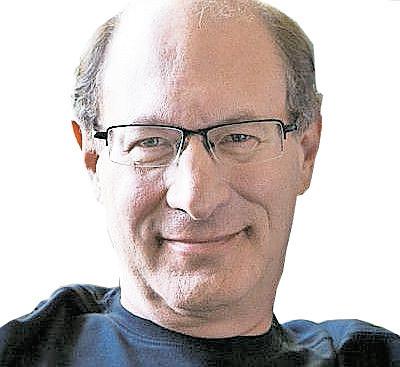
Golda Meir is reputed to have said of Israel’s enemies, “They say we must be dead. And we say we want to be alive. Between life and death, I don’t know of a compromise.”
As is often said, Israelis live in the Middle East, not the Middle West. No matter what Israel’s enemies say or do, this reality does not penetrate the minds of people who live in different neighborhoods. Instead, politicians speak dreamily of ceasefire agreements, a Palestinian state and normalization with Saudi Arabia.
The root of the conflict is not the so-called “occupation.” When Jordan oversaw the West Bank for 19 years and Egypt controlled Gaza, no one demanded a new Palestinian state. The clamor against “occupation” surfaced only after Israel took control of these territories in self-defense. On Oct. 7, Hamas attacked from Gaza, an area Israel vacated 18 years ago. Israel doesn’t occupy Lebanon, Iraq, Yemen or Iran, and yet it is being attacked by all those countries.
The issue has never been Palestinian self-determination. Arab states invaded Israel in 1948 to carve it up among themselves, not create a Palestinian state. The Palestinians rejected offers of statehood in 1937, 1939, 1947, 1979 (autonomy that would
have led to statehood), literally blew up the 1993 Oslo Accords with terrorism and turned down independence provided by the Clinton, Olmert and Trump Mideast peace plans.
What fuels this ongoing conflict is not a fight for Palestinian self-determination but the refusal of Islamist forces to accept a Jewish state in their midst. Most policymakers and pundits can’t process this idea, and students don’t want to believe in religious wars.
At root, religion has always been the basis of the intolerance of Jews in the Middle East. They were, at best, treated as second-class citizens (dhimmis) in Muslim countries before being expelled or forced to flee. In Palestine, the Mufti of Jerusalem incited riots against the Jews two decades before the creation of Israel, demonstrating that anti-Jewish animosity is a cornerstone of the conflict.
Peace cannot be achieved through land or ceasefire agreements since Muslim extremists do not believe that Jews can live on any part of Islamic land. The two-state crowd ignores the Palestinians when they say a Palestinian state would have to be Judenrein, the only place in the world where Jews would not be permitted to live.
Israel’s enemies make their intentions plain, but the world looks the other way. Western leaders argue that Hamas is not just an organization but an “idea,” suggesting that Israel cannot defeat it militarily. If that is true, then how can peace ever be made with an “idea” that calls for the annihilation of Jews?
What fuels this conflict is not a fight for Palestinian self-determination but the refusal of Islamist forces to accept a Jewish state in their midst. Policymakers and pundits can’t process this idea.

For those not convinced that Oct. 7 was only one part of the Hamas agenda, I refer you to the group’s charter, which states plainly: “Our struggle against the Jews is very great and very serious. … The Islamic Resistance Movement is but one squadron that should be supported … until the enemy is vanquished and Allah’s victory is realized. It strives to raise the banner of Allah over every inch of Palestine.”
The IDF eliminated Yahya Sinwar, one head of the Hamas Hydra. Still, it will regrow and terrorism will continue. Hence the idea that Israel should turn over Gaza to West Bank Palestinians who insist that Hamas be part of the government is a nonstarter.
Israel cut off several of the Hezbollah Hydra’s heads, but it will grow another and another. Hezbollah will remain a danger until the Iranian regime is overthrown and Lebanon is returned to the Lebanese without the domination of Hezbollah. Here’s the Hezbollah “ideam” expressed by Hassan Nasrallah: “If we searched the entire world for a person, more cowardly, despicable, weak and feeble in psyche,
mind, ideology and religion, we would not find anyone like the Jew. Notice, I do not say the Israeli.”
To reinforce the point that the war is not about land, occupation or Palestinian suffering, Nasrallah expressed hope that Diaspora Jews would all make aliyah. “If they all gather in Israel, it will save us the trouble of going after them worldwide.”
War is hell, but it is also sometimes necessary.
What is the alternative when the Iranian regime has surrounded Israel with an “axis of resistance,” attacks it with ballistic missiles and is developing nuclear weapons to incinerate it?
Iran’s Supreme Leader Ali Khamenei said, “The Zionist regime is a deadly, cancerous growth” that “will undoubtedly be uprooted and destroyed.”
Look at any PA map or the logos of the terrorist organizations to see that the “solution” is not two states but one called Palestine replacing Israel.
Make no mistake, the Palestinians and the jihadists in Iran and Hezbollah would kill every Jew if
given the chance.
And as Israelis remind the world, their fight is not only for survival — it is a fight for the West, for the defense of civilization against a barbaric ideology that seeks nothing less than the destruction of the Jewish people.
Americans are in the same fight but dislike talking about it. We are fighting ISIS, Al-Qaeda and other Islamist terrorists, even at the cost of civilian lives. Israelis are told they are creating more terrorists, but Americans have never hesitated to kill terrorists out of such concern. And while some are telling Israel to “take the win” after eliminating Sinwar, no one proposed that the United States stop the war on terror after Osama bin Laden was dispatched. There is hope, however distant it may seem.
I am reminded of the British adviser who told a Zionist official the Jews should never have allowed the UN to decide their fate in 1947 because the only way they’d get a state was if the United States and the Soviet Union agreed. That would never happen, he said. He was wrong.
For the next 30 years, Middle East experts said the Arabs will never make peace. Then, Egyptian President Anwar Sadat broke the psychological barrier by going to Jerusalem in 1977 and signing a treaty with Israel two years later. It took 15 more years before King Hussein of Jordan showed the same courage. Another 25 years passed before the Abraham Accords were signed and another four Muslim Arab states normalized relations with Israel. Perhaps, one day, a new generation of Palestinians will see that their future lies in coexistence, not jihad. But that day will only come after Israel’s enemies and their hateful ideologies are defeated, just as Nazism and communism were.
Mitchell Bard is a foreign-policy analyst and authority on US-Israel relations who has written and edited 22 books. To reach him, write: Columnist@ TheJewishStar.com
The Horror and the Hope, they’re all in our prayers
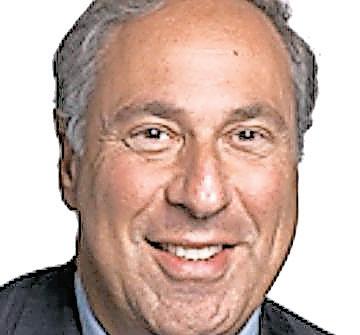
Since Oct. 7, 2023, everything I read, pray, hear, learn or intuit — be it in Torah, navim, ketuvim or tefilla — takes on a different and profoundly extraordinary meaning, resonating with a connection to the events of the past year. Some would say (and the neurologist in me might concur) that this is simply a psychological response to a novel event. To illustrate with a prosaic example, it’s like when you buy a new car and suddenly you start to notice all the same models of that car on the road. Yet I truly believe, as I wrote in a previous column, that in these millennia- and centuries-old verses and prayers, Hashem is broadcasting to us in real time. The frequency and platform is Torah and tefilla And of course last week it happened again. We were sitting in shul the first day of Sukkot when we heard that the evil Sinwar had been eliminated. We were all relieved (dare I say gleeful?) that this rasha no longer walked the Earth, but our concerns quickly turned to, “where are the hostages?”
That night at home, I was looking up something completely unrelated in Tanach and remembered that I wanted to explore further chap-
ter 9 of the prophet Zechariah where the verses I’d mentioned in my previous column originated (I’m referring to versus 14 and 15 in the Rosh Hashana Musaf: “Hashem will appear to them and His arrow will go forth like a flash of lightning, and my L-rd will sound the shofar and shall go southward [Teiman] with storm winds. Hashem, Master of Legions will shield them.”
I commented then on the similarity to the Arrow missile interceptor taking out Iranian missiles from Yemen (Teiman) — like “flashes of lightning” — we had been witness to only 24 hours earlier. Now, two weeks later, I turn to that same Chapter 9, to finally read the whole chapter, not expecting any chidushim or new revelation but just to get the context.
This brief chapter, which all the mefarshim (commentators) agree is talking about the coming of Moshiach, begins with a list of cities in Lebanon — Hamat, Tyre and Sidon. All will become part of the land of Israel at the End of Days. These coastal cities have been featured prominently for days in news maps that have accompanied reporting on Israel’s ongoing war against Hezbollah in Lebanon.
The prophet Zechariah then turns his attention to the Mediterranean coast of what is now the modern state of Israel. He mentions Ashkelon, Ashdod, Ekron, all historic Philistine cities that, too, at the time of the ultimate geula will become part of the land of Israel. (Of course Ashdod and Ashkelon are already part of Israel, and
Ekron, though no longer a city, has an interesting museum of ancient Philistine artifacts and archeological finds.”
And yes, he lists one more Philistine city that will become part of Eretz Yisrael — Aza (Gaza). My eyes widen.
‘His dominion will be from sea to sea and from the river to the end of the earth.’ Sound familiar?
And then Zechariah says, “V’avad Melech mei’aza (a king will perish from Gaza)” (9:5).
My heart stopped. Sinwar, the putative king of Gaza, just perished! I continue to read.
Talking about the Jews who will occupy all formerly Philistine cities, notably Gaza, Hashem says (9:8): I will encamp at My home [to protect it] against any army and from any [enemy] who comes and goes, and an oppressor will never again pass through them; for now I have seen [their suffering] with My eyes.
Read those words and tell me they don’t apply
to whatever we are experiencing and that they don’t provide you with chizuk and comfort! I start to cry.
Then continue with verse 9: “Gili meod bat Zion (Rejoice greatly, O’ daughter of Zion)! Zechariah starts describing the king, Melech HaMoshiach, who will come into Jerusalem, “a humble man riding upon a donkey.” My mind is racing with hope and ecstasy but also worry. Yes, but what about the hostages?
Verse 10: “His dominion will be from sea to sea and from the river to the end of the earth.” Sound familiar? Yes, but what about the hostages?!
And as quickly as these thoughts scurry through my brain, the response comes in the very next verses (11,12):
Gam Aat b’daam briteich shilachti asirayich mi-bor ein mayim bo. Shuvu l’vitzaron asirei hatikvah. (Also you, through the blood of your covenant, I will have released your prisoners from the pit in which there is no water. Return to the fortress [Jerusalem] O’ prisoners of hope!).
There it is! Hashem is letting us know! He is speaking to us. All we have to do is open our eyes, our hearts and minds and open His book, His Holy Torah. May we be zocheh to see this prophecy speedily come true, as we have seen the others, and make this year a true Simchat Torah. Dr. Alan Mazurek is a retired neurologist, living in Great Neck, Jerusalem and Florida. He is a former chairman of the ZOA. To reach him, write: Columnist@TheJewishStar.com




Continued from page 21
of creation: “And Hashem said I will erase man whom I created from the face of the earth, from man to animal, to the creatures that crawl, to the birds of the sky for I have relented that I made them.” (Bereishit 6:5)
Why must all the animals be destroyed if it was man who had become destructive? It seems that there is something significant to be discerned from the focus on the animals here, especially when one considers that G-d commands Noach to bring a pair of creatures from every living species (6:19-20) of bird and animal into the Ark.
Why does Noach need to spend what will amount to an entire year living in an Ark which is essentially the largest zoo in history?
Pirkei Avot teaches that there were ten generations from Adam till Noach, and ten generations from Noach till Abraham (perhaps suggesting that Noach was a pivotal link in the history of the world.) The way in which these generations are listed follows a specific pattern:
And Adam lived 30 and 100 years and gave birth … and his name was called Shet. And the days of Adam after giving birth to Shet were 800 years and he had sons and daughters. And all the days of Adam that he lived were 900 and 30 years and he died. (5:3-5)
Each of the ten generations between Adam and Noach follows this same pattern, concluding with the total lifespan of each individual.
However, in the delineation of the generations from Noach (after the flood) till Abraham, the final verse, listing the total life span and the individual’s death, is missing. Why the difference?
Perhaps this is the key to understanding the totality of the story of the Flood.
Before the Flood the listing of generations is focused on each individual — on the totality of his life and the fact that he died. But after the




Flood, it is not the individual that is important, but rather his place in the chain that brings the world forward, closer to the generation of Abraham.
When the world was created, human beings were the final pinnacle of creation.
The Torah points out (see 2:5 and Rashi ad loc) that prior to man’s creation, plants and grasses did not sprout forth as there was no rainfall, because man had not yet been created. In other words, the world existed to benefit man, so if man didn’t yet exist there was no point yet to creation.
Thus, when G-d decides to destroy mankind, in essence there is no longer any purpose to the world, which may be why the animals and all life are destroyed as well.
• • •
There is a beautiful Midrash that has Shem, the son of Noach, describing to a young Avram what it was like to be in the Ark:
“Avraham asked Malki-Tzedek (Shem): ‘How did you merit surviving in the ark’?”
“Through giving tzedakah” he responded.
“But what kind of tzedakah could you do on the Ark? There were certainly no poor people there!” asked Avraham, to which Shem responded: “Tzedakah for all the animals. We never slept, spending instead our entire time taking care of all the animals!” (Midrash Tehillim 37:1)
In other words, the Torah describes that the world was destroyed because of robbery and adulterous behavior, all of which are the self-centered actions that result from a society based on self. If the world is created for me, then ultimately I am all that matters. So the ark became the incubator for a new reality in which man would live in harmony with the entire world.
Ultimately it is not that Noach and his ark save all the animals; rather, all the animals in the ark will save Noach.
There is no experience in Israel that breaks down our boundaries more than war. And in a lonely parking lot full of people experiencing the same moment of pain, there were no lines,
because all the differences were left at home.
The Jews (and non Jews) who filled that parking lot were left wing and right, “religious” and less so (whatever that means), with kippot and without, and of every background imaginable.
Today, more than ever, we need to remember that we are all really one family, and that all of us, in this great ark we call a world, need to work a little harder at learning to live, love, and even let go, together.
Rabbi Freedman is rosh yeshiva at Yeshivat Orayta in Jerusalem. To reach him, write: Columnist@TheJewishStar.com. This column was previously published.
life worth, if we can’t use our strengths for a purpose and put ourselves in the driver’s seat to accomplish our goals?
Avi Billet, who grew up in the Five Towns, is a South Florida-based mohel and rabbi of Anshei Chesed Congregation in Boynton Beach. This column was previously published. To reach Rabbi Billet, write: Columnist@ TheJewishStar.com
you felt before, and then some.”
For, you see, the yetzer, or if you wish the devil, knows of the connection between addiction and spirituality.
How well I remember the 1960s, and the many gifted spiritual seekers who resorted to alcohol and more potent substances to generate moods of spirituality.
Judaism cautions us not to be seduced by facile techniques, even in the service of achieving higher and holier states of conscientiousness. That is why the Torah shifts next week into the story of Abraham, whose spirituality was based on service, on the courageous search for social justice, and on compassionate concern for others in need.
In short, Abraham was dedicated to the very arduous methods that Noah sought to circumvent by drink.
To reach Rabbi Weinreb, write: Columnist@ TheJewishStar.com. This column was previously published.





But in Noach’s case, the door doesn’t seem to be open to an objection.
Rabbi Meleyeff points out that Chizkiyahu, the king, was told by the prophet Yeshayahu, “Put your house in order, because you are going to die” (Kings II 20:1, Yeshayahu 38:1). Yet he was able to repent, and he lived another 15 years.
Along similar lines, we have the tale of Yonah whose prophesy to Nineveh was pretty definite: “Another 40 days and Nineveh will be overturned!” There doesn’t seem to be a way out. But, as we all know, the Ninevites changed their ways, and the decree was overturned.
And this is why the waters are ascribed to Noach. Because while it’s true that a definite pronouncement of a decree doesn’t seem to be open for discussion, there is a difference between whether Noach personally — or, better, the people it actually affected — could do anything about it.
The Nineveh example is great because it demonstrates the truth that there was nothing that Yonah could do for the Ninevites, but in informing them of the pending doom, they could change their own destiny.
Building an ark was not enough — Noach needed to do more to teach his generation of the danger of the pending “unconditional” doom. Not that his prayers on their behalf would have been enough; that element, I think, was out of his hands. But it was not out of the hands of those who would be directly impacted by the flood.
As a result, the flood waters are ascribed to Noach, because he did nothing — to the extent that he could have had influence — to help people stay the waters.
In that sense, he remains at fault. Even when things seem definite or destined to be, those most directly impacted have the power to shift their destiny. I’m not saying it’s easy — it can be exceedingly difficult. But what is
views are inaccurately presented as ‘authentic Judaism;’ comments derogatory towards others are regularly heard on the Jewish ‘street.’ Such views only degrade us as a people and distance us from the very moral behavior we are meant to teach. A return to classical Jewish sources allows us to regain our footing in our approach to those outside the circle of our belief.”
This valued take has recently been buttressed by “The Theory and Practice of Universal Ethics: The Noahide Laws” (Institute for Judaism and Civilization, 2014), by Rabbi Dr. Shimon Cowen of Melbourne Australia.
A sample of the author’s thinking can be gleaned from chapter five, entitled, “Politics: States, World Society and the Noahide Laws,” in which he teaches the following:
“Within the State, the Noahide laws resolve the relation of religion and State, private morality (in matters between the person and G-d) and public morality (between persons) differently to the way existing advanced societies have tended to detach the two realms and marginalize the realm of personal morality. The authority and guidance for laws between persons ultimately comes from the realm of personal belief and morality; and certainly the State may not legislate in a way to undermine society’s own moral and spiritual foundations.
“Thus, it is explained that the plurality or neutrality of the American State (for example), when it functions authentically, works not to exclude religion, but to maintain the common denominator spirituality of American society — ‘non-denominational but scrupulously monotheistic’ — which has a fundamental affinity with the basis of the Noahide laws.”
Given the unfortunate chaos of murder and pillage in the world today, revisiting the moral basis of our religious tradition is an overdue exercise. This book, despite its seemingly complicated verbiage, will provide you with a sophisticated and worldly perspective that will further your appreciation and practice of our religious regimen. You will not be disappointed.
A version of this column was originally published 2015. To reach Alan Gerber, write: Columnist@TheJewishStar.com
— as if 35%, more than one in three, under a leftist prime minister, is not extreme. A very depressing point of view.
“Western governments have not forced Israel to relent [and accept a ceasefire].”
In the context of The Economist article, the idea of a ceasefire is not to secure the release of hostages; the idea is an unconditional cessation of Israeli fire, as well as the international imposition of a two-state settlement. The Hamas invasion of Oct. 7 is not even mentioned. Hostages are not even mentioned. The rape, murder, kidnapping and body-burning of Oct. 7 are not even hinted at. The assumption here is that Israel is at war for no reason. The current war is “like previous conflicts in Gaza.”
The capacity to see cause and effect — Israel is attacked, ergo Israel responds — is utterly absent. Depressing! If the more than a century-long Palestinian rejection of political pluralism continues, what hope is there for the future?















When voting at the polls this November,









































IMPORTANT PROPOSALS FOR cleaning public property, public safety legislation and more will be on the other side!
IMPORTANT PROPOSALS FOR cleaning public property, public safety legislation and more will be on the other side!


YOURVOTE COUNTS!






DON’T FORGET TO FLIP YOUR BALLOT!


